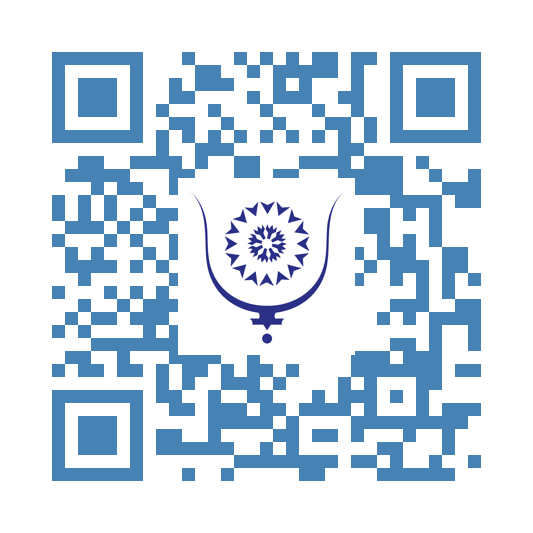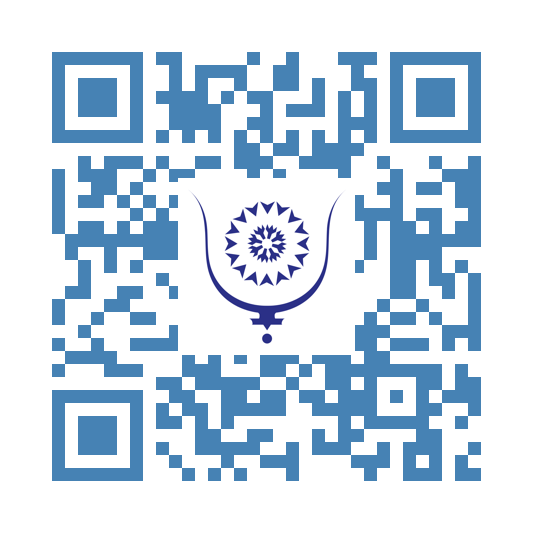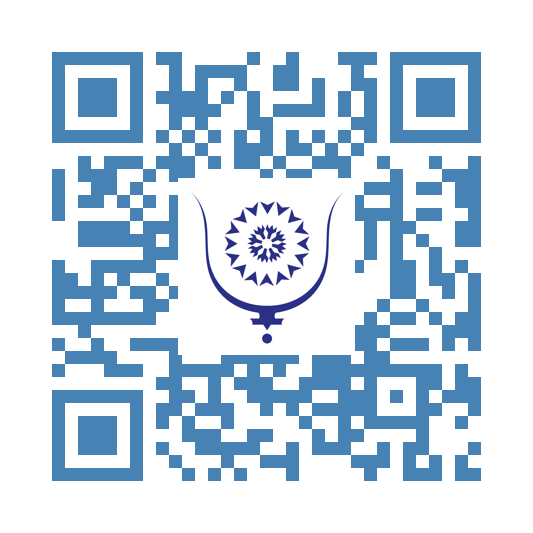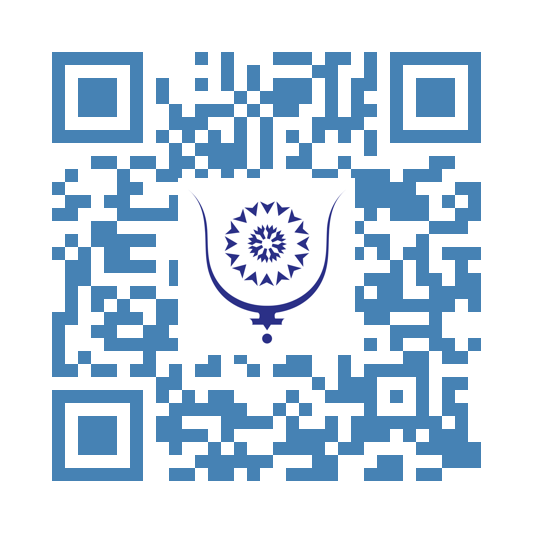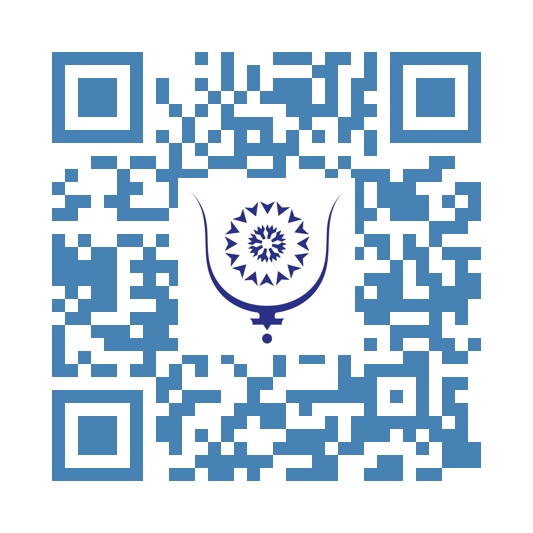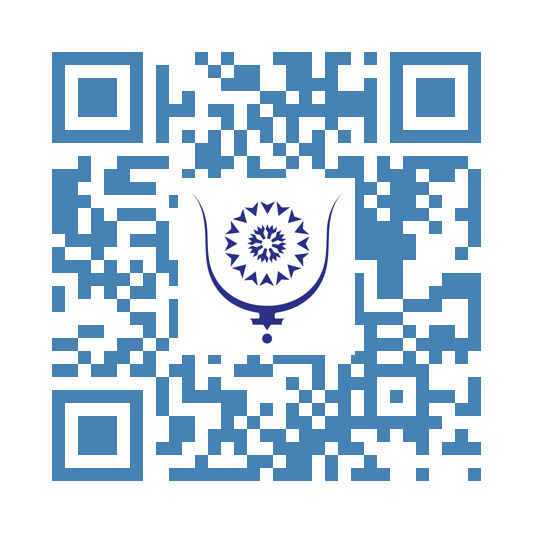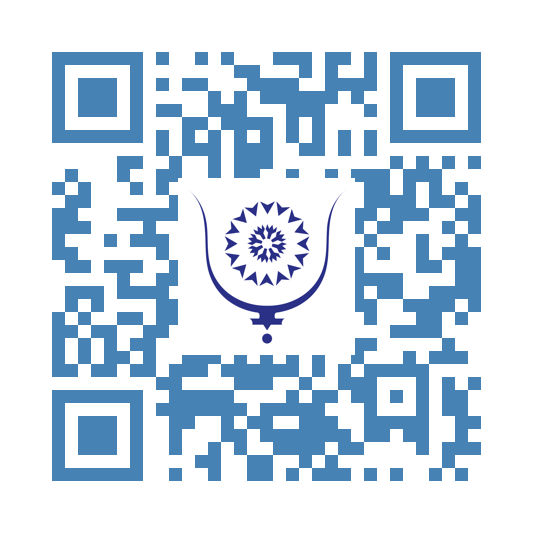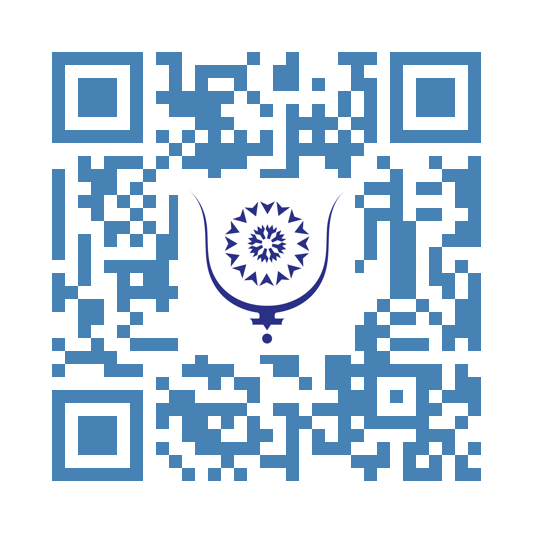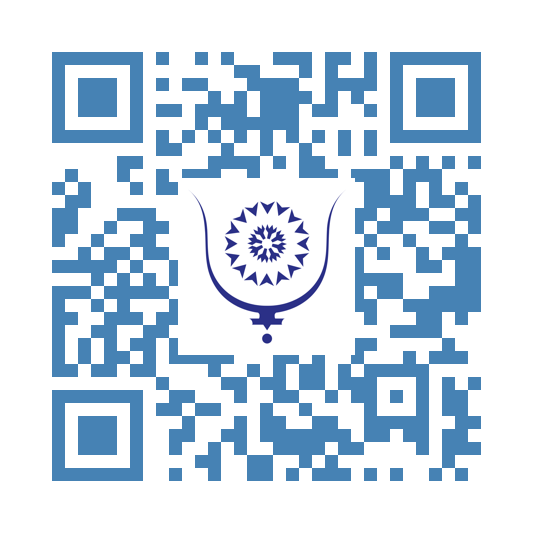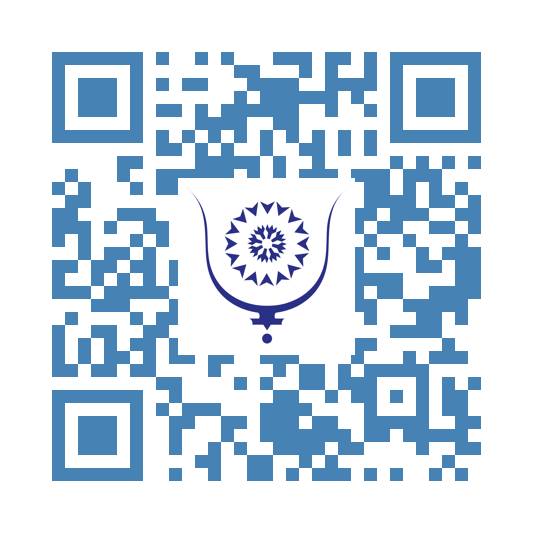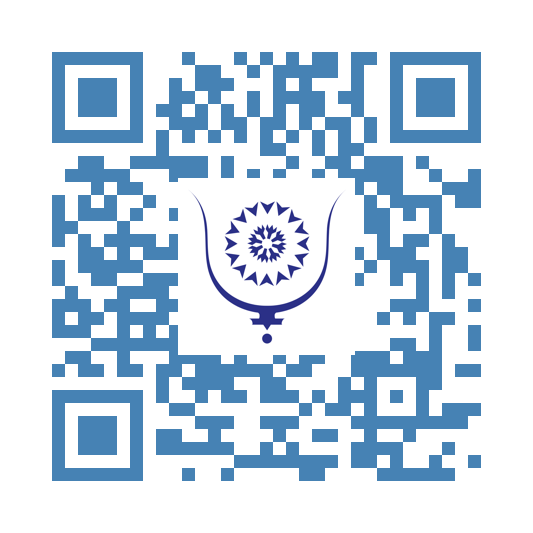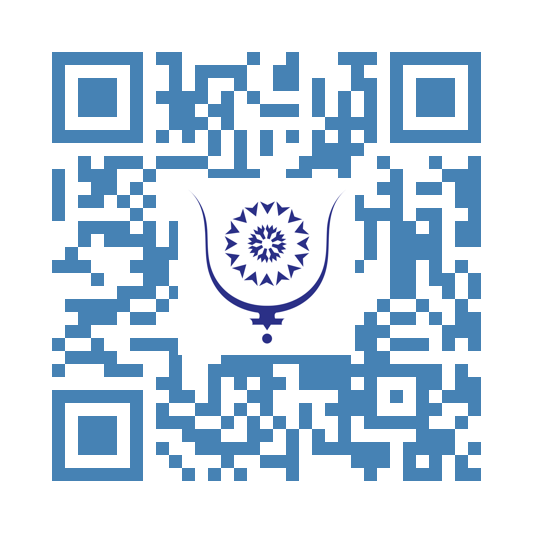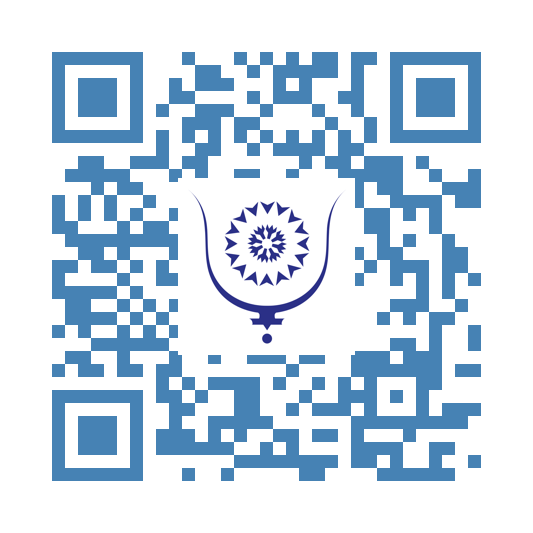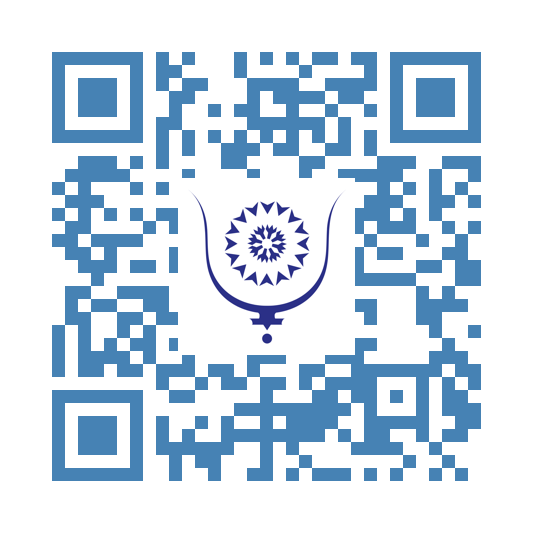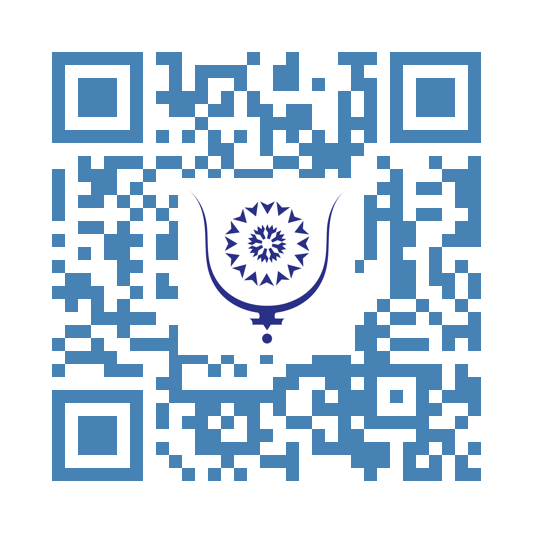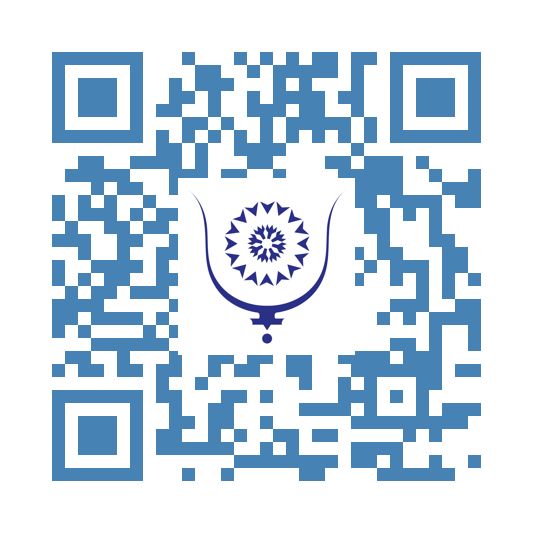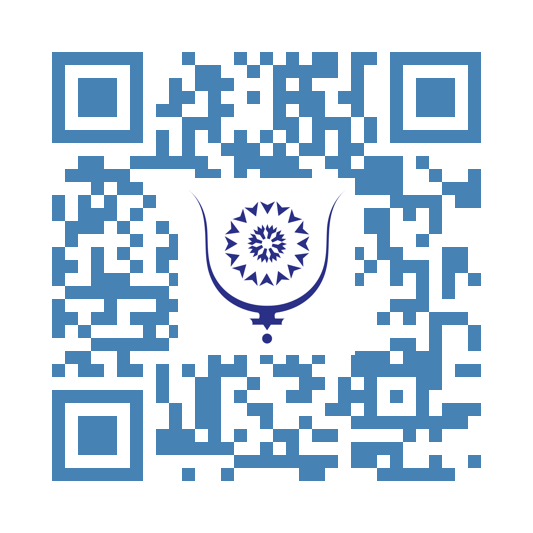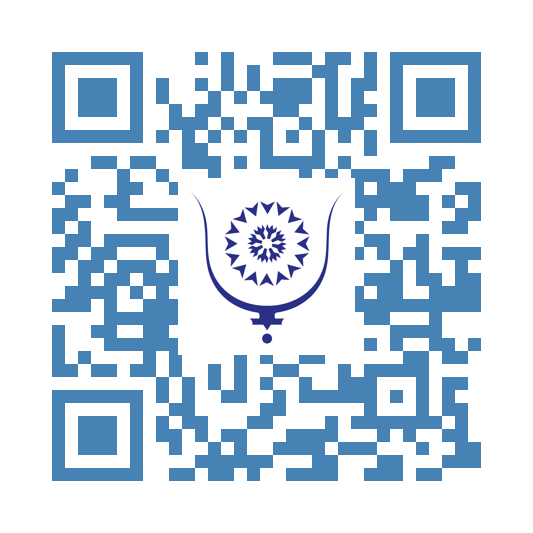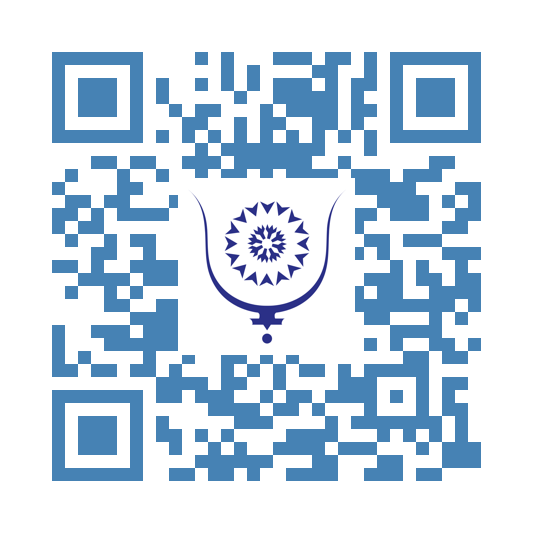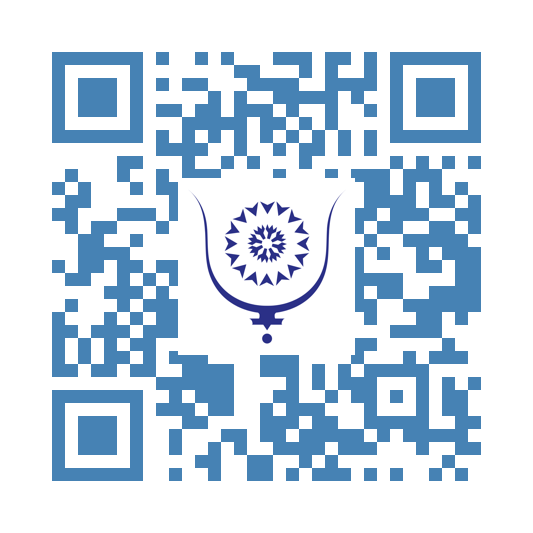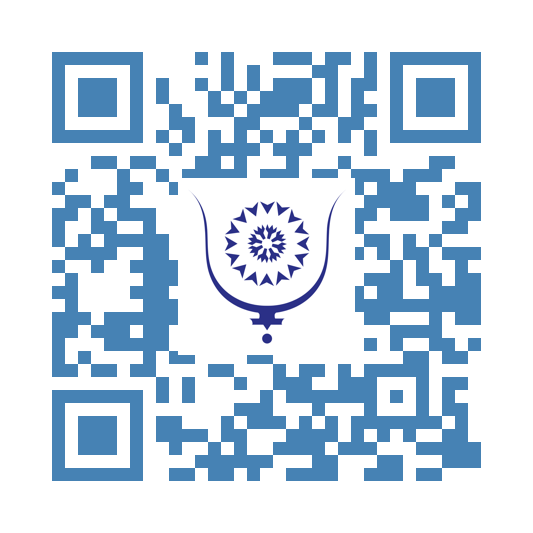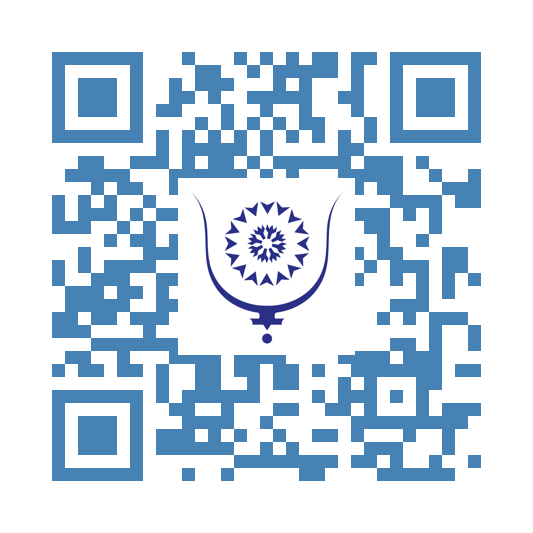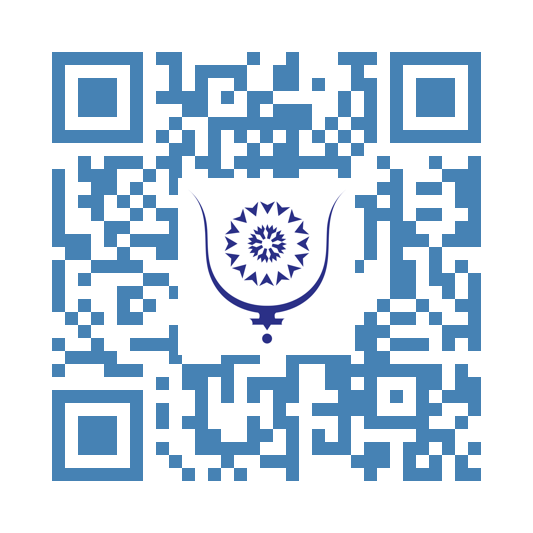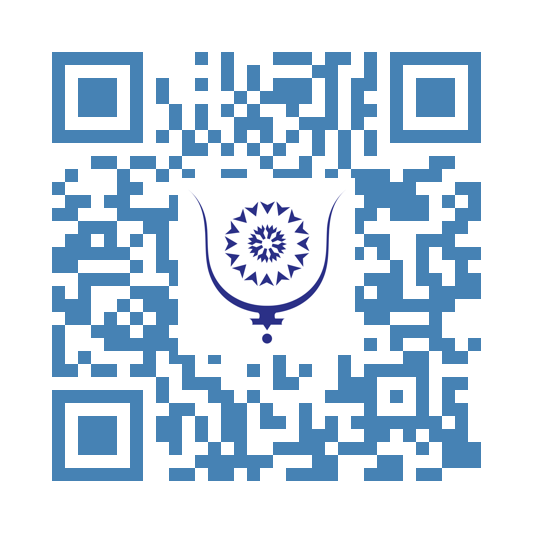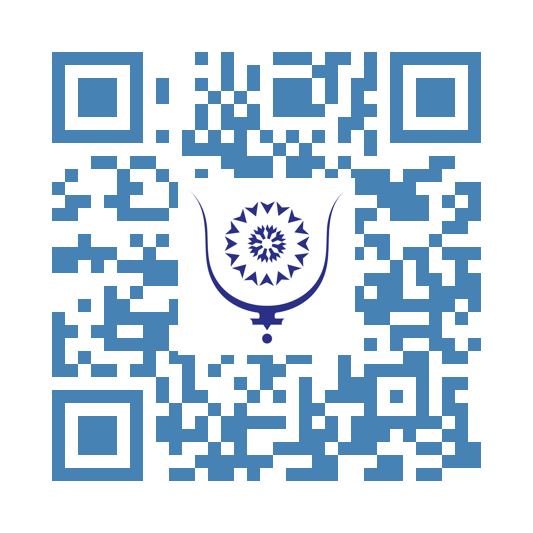“Peace and Return with Dignity”: A Sahrawi Collective Calls for Voluntary Return to Morocco
139
Founded in June 2025 in Nouadhibou by Sahrawis living in Mauritania, Europe, and the Tindouf camps in Algeria, a collective named “Peace and Return with Dignity” seeks to promote the voluntary return of “refugees” to Morocco. Under the leadership of Badi Abdelaziz—who presents himself as a former separatist military cadre turned opponent of the Polisario Front, the group issued an appeal in September 2025 to the Moroccan authorities, requesting facilitation of repatriation for Sahrawis under safe and dignified conditions. While Moroccan press outlets relayed this initiative, it has remained largely absent from the media in the neighboring country and its proxy, for obvious reasons.
The collective denounces the “difficult” and “inhumane” conditions endured by populations in the Tindouf camps, blaming the Polisario’s oppressive administration and calling for guarantees of safety and dignity for those wishing to return. This initiative highlights both humanitarian concerns already raised by several NGOs and the voices of Sahrawis themselves seeking to break free from dominant structures (the Polisario Front and the Algerian military authorities). The stakes are therefore both humanitarian and political.
According to Badi Abdelaziz, the initiative aligns with the recommendations previously emphasized by Morocco’s UN ambassador, Omar Hilale, who underlined that "refugee" return requires an official census, a demand made for years by the UN High Commissioner for Refugees (UNHCR) but never carried out, blocked by Algeria’s military junta. A census is considered a prerequisite to identify those eligible for return. As widely known, not all those held in Tindouf originate from the region. The collective therefore aims to ensure a transparent and rights-based return, while challenging the Polisario’s political control over the camps.
The population, weary of harsh living conditions, is increasingly aware of the false propaganda and of its exploitation by the Polisario separatists for agendas far removed from official rhetoric. UN agencies, in their Sahrawi Refugees Response Plan 2024-2025, estimate funding needs at nearly USD 104 million to assist those held in Tindouf, underlining their total dependence on international aid. These figures reflect the gravity of the situation, which fuels both diplomatic and humanitarian debates on the so-called Western Sahara issue, especially as many reports, backed by evidence, stress the systematic diversion of aid.
The group’s call must also be seen in the light of the geopolitical evolution of this dossier with its multiple regional and international ramifications.
The international community, and major powers first and foremost, are weary of the situation Algeria created and continues to maintain at exorbitant cost, at the expense of its own development, the well-being of its people, and regional security.
In this context, the roles of Mauritania and Algeria are central. Mauritania, though relatively neutral, nevertheless hosted and tolerated the launch of this collective in Nouadhibou, perhaps signaling a shift or a willingness to open more pragmatic dialogue. Algeria, on the other hand, remains the Polisario’s staunchest political and military backer. The reality today is that Algeria’s military junta uses this conflict to boost regional influence, counter Morocco’s growing weight, and above all export its failures and chronic shortcomings, despite the country’s immense wealth.
The Morocco-Algeria rivalry, fueled solely by Algiers, is further exacerbated by this issue, blocking regional progress such as Maghreb reunification and broader economic integration. The conflict hampers cooperation on trade, security, and migration, at a time when the region faces shared challenges like terrorism, irregular migration, and climate change.
International actors also play a pivotal role and increasingly seem eager to fast-track a resolution. The United States, France, Spain, the United Kingdom, and other EU, African, Asian, and Latin American countries have clearly aligned with Morocco’s position, recognizing the Moroccan sovereignty of the territories in question on the basis of factual and objective arguments. The recent visit of Minister Bourita to Beijing also appears to support this trend.
Officially, however, the status quo remains, at least until the next UN Security Council meeting on the matter. Morocco has consolidated its network of support thanks to its autonomy plan, arguing that it represents the realistic solution that respects territorial integrity and national unity. This proposal appeals to partners faced with the chimera of independence promoted by Algeria’s proxy.
Security considerations weigh heavily as well. The Sahara is a strategic corridor for drug and arms trafficking, raising alarms among Western powers. Stability in the area is therefore crucial not only for local populations but also for regional and international security.
The “Peace and Return with Dignity” collective thus offers a fresh internal perspective: a significant portion of Sahrawis rejects prolonging the conflict at the cost of continued suffering. Its endorsement of autonomy within the Kingdom and its clear call for voluntary return are signals that cannot be ignored in the regional diplomatic calculus.
Still, it remains difficult to assess the collective’s exact representativeness compared with other factions, whose influence and independence are often hard to gauge. Moreover, the regional context, marked by tensions such as those between Mali and Algiers, contradictory interests, and major security challenges, continues to complicate rapid progress.
In the meantime, those held in Tindouf camps continue to live in precarious conditions, underscoring the urgency of reinforced humanitarian action. Only Morocco’s proposed political framework ensures rights and respects the dignity of the affected populations. Balancing political settlement, strategic ambitions, and humanitarian urgency remains the key to unlocking this protracted issue, one whose resolution will largely shape the future stability of North Africa. It is in this context that upcoming Security Council debates on this artificial conflict, which has dragged on for far too long, should take place.
Share:
“Peace and Return with Dignity”: A Sahrawi Collective Calls for Voluntary Return to Morocco
copy:
https://bluwr.com/p/391399183
AI: The fallacy of the Turing Test
281
The Turing test is simple to understand. In a typical setup, a human judge engages in text-based conversations with both a human and a machine, without knowing which is which, and must determine which participant is the machine. If the judge cannot reliably tell them apart based solely on their conversational responses, the machine is said to have passed the test and demonstrated convincing human-like intelligence.
This is convenient, it perfectly avoids facing the hard questions such as defining intelligence and consciousness. Instead, it lays out a basic naive test founded on an ontological fallacy: it's not because something is perceived as something else that it is that thing.
The most evident critique of the Turing Test is embedded into the fundementals of Machine Learning itself:
- The model is not the modeled. It remains an approximation however precise it is. A simple analogy makes the ontological fallacy clear. It's like going to a magic show, seeing a table floating above the ground and believing that the levitation really happened. How many bits of information separate a real human from a chatting bot? Assuming the number is exactly 0, without any justification, is an extraordinary naive claim.
Interestingly, the Turing Test also greatly fails at defining so called super-Intelligence. A super Intelligent machine would evidently fail the test by simply providing super-intelligent answers. Unless it decides to fool the experimenter, in which case it could appear as anything it desires rendering the test meaningless.
Regarding modern LLMs, the veil is already faling. LLMs have quircks, like an oversuage of em-dashes. A strange features that is indicative of something potentially pathological in the way the models are trained. These strange dashes would have been expected if a majority of people were using them. However it so happens that hardly anyone knows how to find them on their keyboard. This proves that LLMs are not following the manifold of human writing and suggests the existence of other bisases.
Finally, embedded inside the promotion of the Turing test is often a lazy ontological theory of materialism that stipulates that consciousness is not fundamental but a byproduct of matter. Often negating it's existence altogether: It's not that consciousness can be faked, or that it is the result of computations, the understanding is that consciousness does not exist. It is an illusion that takes over the subject of the experience. Again a theory of convenience, based on little justification that produces a major paradox:
Who is conscious of the illusion of consciousness?
Share:
AI: The fallacy of the Turing Test
copy:
https://bluwr.com/p/389753139
World Athletics Championships Tokyo 2025: American Domination and Morocco's Decline
558
The 2025 World Athletics Championships in Tokyo gathered a record participation, with medals won by athletes from 53 different countries, marking a notable increase compared to previous editions. This reflects the steady growth of athletics worldwide, which remains the most universal sport.
Tokyo confirmed the historic dominance of the United States, which won 26 medals (16 gold, 5 silver, 5 bronze), followed by Kenya (7 gold, 2 silver, 2 bronze) and Canada. Representing Africa, Botswana ranked 5th (2 gold and 1 bronze), a position Morocco held in Seville 1999 (2 gold, 2 silver, 1 bronze).
The United States maintained its supremacy, notably thanks to a highly effective team of sprinters and relay runners, including athletes like Jefferson-Wooden and Noah Lyles, the latter securing his 10th world championship medal, symbolizing longevity and consistency at the highest level.
Kenya, bolstered by its long- and middle-distance runners, remained among the top nations, confirming Africa’s tradition of excellence in these disciplines. Canada, the Netherlands, Botswana, New Zealand, and Spain completed the list of the most medaled nations, illustrating a diverse rise in global athletics.
Africa again demonstrated a significant presence, particularly in the middle-distance and 3000 m steeplechase events, key disciplines for the region. Among the titleholders were Kenyan Beatrice Chebet, winner of the 5000 m and 10,000 m, and Faith Kipyegon, victorious in the 1500 m and silver medalist in the 5000 m. Botswana’s victories in the men's 400 m and 4x400 m relay illustrate Africa's growing strength in events it is gradually mastering. Tanzania’s win in the men's marathon was also a highlight. El Bakkali, highly anticipated in the 3000 m steeplechase, stood out despite not defending his title. Maintaining such longevity in a demanding event is no easy feat.
The competition also highlighted the strengthening of African mixed relays, with South Africa's team setting the only African continental record, in the mixed 4x400 m relay. This underscores the continent's tactical and collective development.
African performances also emphasize the need for targeted investments in disciplines where the continent traditionally excels, alongside growing interest in mixed and team events, linking to a more strategic and inclusive approach to athletics. Although African participation remains strong both quantitatively and qualitatively, results call for strategic reflection ahead of future competitions to enhance competitiveness and sustainable success, especially considering the decline of male athletes in the 5000 m and 10,000 m events.
In the country ranking, two major African disappointments stand out: Ethiopia’s drop from 6th place in 2023 to 22nd, and notably Morocco’s fall from 13th to 35th place.
This edition confirmed Morocco’s decline, which for over 20 years has struggled to regain success except for the valiant Soufiane. The results are not even encouraging: among 18 athletes entered, only one female and one male finished the marathon, while others had to withdraw. Only one female athlete, Raziki in the 800 m with a personal best, advanced to the second round, and just two men reached the final: El Bakkali, of course, and the young Salaheddine Ben Yazide, who placed 5th in the 3000 m steeplechase. Once a significant player, Morocco now faces the challenge of renewal to remain competitive amid increasingly dense global competition.
The mediocrity of the results raises serious questions and should prompt authorities to draw lessons from this decline, which Moroccan public opinion struggles to accept, as evidenced by numerous social media posts and discussions. The country lacks neither expertise, resources, infrastructure, competent staff, nor political will.
Share:
World Athletics Championships Tokyo 2025: American Domination and Morocco's Decline
copy:
https://bluwr.com/p/388217664
Political Participation in Morocco, Crisis of Representativity, and the Emergence of New Forms of Protest
564
As Morocco prepares for a major electoral milestone in 2026, announced by His Majesty the King who wishes it to be exemplary, the political landscape appears deeply shaken and even disconnected from reality. A recent report from the Moroccan Center for Conjuncture reveals that 91.5% of Moroccans do not identify with political parties and 94.8% do not trust them. They rate their performance poorly, a striking indicator of an unprecedented crisis of trust and representativity. Regarding Parliament, 89.5% of citizens evaluate it negatively. This dissatisfaction rate is close to that recorded for the government: 87.3% strongly criticize its performance, while only 1.1% express a positive opinion about it.
Even more worrying, financial compensation tops the list as a motivation to vote for one candidate or another, while affiliation to a political current represents only 13.7%. This is a troubling finding.
The turnout in previous elections already constituted a revealing index of a true political disengagement. The current situation is in fact nothing but a prolonged expression of distrust toward the political system. This distrust, which is not new, has probably intensified considerably.
Rejection now goes beyond simple disinterest in voting. It is a "global rejection" of the partisan system, perceived as incapable of responding to the real expectations and needs of citizens. Having experienced various political trends without meaningful results, they increasingly trust only His Majesty the King and express this loudly. The rupture is fueled by structural problems: youth unemployment rate reaching 36.7% in 2024 according to some sources, growing social precariousness, and a feeling of abandonment in rural and remote areas.
What is new today are the increasingly numerous voices rising outside the ballot box and the political calendar as provided by the Constitution. Disinterest in parties does not mean total disengagement. On the contrary, new forms of political participation are emerging locally. In Aït Bouguemaz, in the High Atlas, as in many villages and hamlets, inhabitants no longer hesitate to demand essential infrastructure and take over roads to make themselves heard. Everywhere, often driven by youth, people mobilize to denounce exclusion and lack of economic prospects. Some demand access to drinking water, others express a diffuse unease, a form of dissatisfaction not always clearly articulated.
The urban environment is no exception. In Agadir, gatherings have raised alarms about the crisis in the health system and failures of a hospital that was once a flagship of public health. It has even been reported that demonstrations are banned in front of some other hospitals in various regions.
When these actions, escaping traditional electoral frameworks, express a spontaneous will for citizen engagement, they are very welcome and legitimate. But when demands are tinged with ideological language, nihilistic expressions, or manipulated by populism fueled by some politicians or by improvised self-appointed pundits armed with a phone or microphone, the situation becomes more worrying. It should also be noted that disconnected appointments, the detachment of many officials from reality, and the inefficiency of often costly programming do not help.
In response, the population expresses itself in its own ways: in public, on social media, during football matches or cultural events. Some even question the strategic choices of the State, denounce World Cup projects or the TGV, and draw critical parallels between their region and the more favored areas of the country.
These claims are generally perceived as legitimate and receive strong popular echo. The general feeling is that the balance Morocco has always sought between freedom and equality no longer satisfies. The demands reflect a malaise and a disavowal of public policies, both among entrepreneurs who create wealth and those who claim more equality, often implicitly meaning taking more from those who have to redistribute. Those who contribute, rightly so, already feel they give a lot. As for civil servants, whose salary is guaranteed every month-end, they are also dissatisfied as their purchasing power deteriorates year after year.
Official political discourse and reassuring information no longer suffice. Citizens demand concrete results, at home, in their regions, in their villages. The key word is "tahmiche": this feeling of exclusion often rightly experienced, although in some cases citizens are also responsible, whether through their vote for incompetent people or their lack of initiative. Welfare policies play a significant role here as well.
Most concerning is that youth seem to oscillate between disillusionment due to frustration and innovation in their modes of expression. They project an image of themselves claiming rights but not always considering their duties. The rejection of the traditional system does not mean a total withdrawal from the political sphere. This new generation, connected and aware of national and global issues, favors more direct and creative forms of action. However, this marginalization of traditional institutions is a warning sign: if no concrete reform is undertaken, the gap between the governed and the governors is likely to widen further.
The 2026 elections thus become a crucial milestone. They constitute a major test for Morocco. Faced with rising abstention and extra-institutional protest, they could either confirm the crisis of trust or initiate a renewed participation. For this, parties and institutions must go beyond speeches and establish genuine dialogue spaces. They must also respond to local demands with concrete measures, demonstrating that politics can change daily life.
Without a strong and credible response, these elections risk being nothing more than a meaningless formality, further deepening popular disenchantment.
Morocco finds itself at a delicate turning point where society politically reinvents itself outside traditional parties. The challenge of the coming elections is therefore much more than a simple vote: it is the reconquest of trust and authentic representation, to finally engage the country on the path of confidence, lasting stability, and cohesion.
Share:
Political Participation in Morocco, Crisis of Representativity, and the Emergence of New Forms of Protest
copy:
https://bluwr.com/p/388205605
Moroccan Sahara: De Mistura's Statement, A Diplomatic Turning Point or a Headlong Rush
891
The UN Secretary-General's Personal Envoy for "Western" Sahara, Staffan de Mistura, made a statement in Italian, his most comfortable language for expressing emotions, that was remarkably frank. His tone, unusual for a diplomat, was direct and unambiguous. In essence, he said that the Moroccan Sahara conflict is not a "decolonization" issue but rather an indirect confrontation between Morocco and Algeria. He thus broke a diplomatic taboo and deconstructed a narrative sustained for fifty years with billions of dollars by a military regime from another era, which projects its frustrations and shortcomings onto this conflict. For the first time, a UN emissary publicly said what researchers, diplomats, and observers have been repeating behind closed doors for nearly half a century.
Since the Green March in 1975, the Sahara question has been marked by two irreconcilable narratives. Morocco rightly considers this territory an integral part of its territorial integrity. History and geography prove this. This position is now supported by Washington, Paris, Madrid, London, most Arab countries, and nearly 110 other UN member states. Morocco, acting in good faith for decades, has spared no effort to find common ground with its eastern neighbor. Tired of Algeria's chronic and toxic animosity, Morocco proposed an autonomy plan for the region in 2007, within the framework of its sovereignty. Since then, nearly the entire international community views this proposal as the only feasible one. In reality, it is the only one on the table: the opposing party has never offered a credible solution apart from the partition of Morocco.
Algeria, meanwhile, supports its proxy, the Polisario Front, militarily, diplomatically, and financially, while denying direct involvement in the conflict. Algeria continues to call for a self-determination referendum that has become unrealistic as demographic, political, and security balances have shifted. It is worth recalling that Algeria deliberately obstructed a referendum that King Hassan II himself had proposed.
Until now, the UN had maintained a façade of neutrality, speaking of a "political process" under its aegis. But everyone knew that behind the polished phrases, this was a strategic power struggle between Rabat and Algiers.
In this context, how should De Mistura’s comments be understood, if not as a calculated move ahead of a crucial Security Council meeting? This time, it came after several powers, notably the United States, France, and the United Kingdom, openly supported Morocco’s autonomy initiative.
Two interpretations are possible:
- Is it pressure on Algeria to publicly acknowledge its central role? De Mistura thus pushes Algeria to take responsibility and abandon its comfortable posture as a "mere observer."
- Is it a recognition of impotence? The Italian diplomat implicitly acknowledges that the UN has failed to impose a solution, and that the outcome now depends on a political power balance within the Security Council.
In either case, Algeria stands more contradictory than ever.
For fifty years, Algiers has contributed to freezing the conflict, at great cost:
- A lasting blockage of Maghreb integration, depriving North Africa of vital economic integration;
- Eroding regional opportunities in energy, trade, and collective security;
- A burden on the international community, with a UN mission (MINURSO) unable to fulfill its mandate, but whose funding and costs continue indefinitely.
This policy has gradually isolated Algeria diplomatically, while Rabat gains increasing support, especially after the US recognized Morocco’s sovereignty over the territory in 2020.
Are we finally moving toward a historical clarification? The central question now is whether the Security Council is ready to take a step forward. Two options present themselves:
- Fully endorse the Moroccan approach, recognizing the autonomy plan as the only serious negotiation basis;
- Or maintain the diplomatic fiction of a decolonization process, risking prolonging a conflict that undermines the UN’s credibility and regional stability.
By confronting Algeria with its responsibilities, De Mistura has changed the tone of the debate. Even if his gesture can be read as a sign of frustration or a last warning, it has the merit of bringing political reality back to the forefront.
The future of Western Sahara no longer depends on technical reports or ambiguous language: it requires clear political will. Sooner or later, that will must end a costly historical anomaly in the Maghreb, Africa, and the world, which also weakens the credibility of the multilateral system.
Staffan de Mistura has gone further than his predecessors. At the very least, he deserves the medal of candor.
The Security Council will no longer read the question the same way and must change course, the wind has definitively turned.
Share:
Moroccan Sahara: De Mistura's Statement, A Diplomatic Turning Point or a Headlong Rush
copy:
https://bluwr.com/p/385062716
Moroccans’ Relationship to the Law: A Great Misunderstanding…
1126
The relationship between Moroccans and the law reveals a profound ambiguity, fueled by a build-up of paradoxes and historical, cultural, and political contradictions. It cannot be explained solely by a lack of communication or pedagogy, but by a deeply rooted perception in which the law is not seen as a collective framework to be respected out of conviction, but as an external constraint, often imposed and rarely internalized.
First, one must highlight the ignorance—sometimes deliberate—of the very existence of many laws. In numerous cases, the Moroccan citizen only discovers a text when it is opposed to them in a conflictual situation. This reactive, rather than proactive, relationship with the law generates paradoxical behaviors: resigned acceptance when it imposes itself forcefully, but also recourse to excuses, justifications, or feigned ignorance whenever its application becomes restrictive.
To this lack of knowledge is added an ambivalent attitude: the law is respected not out of moral adherence, but out of fear of sanction. Road traffic provides the clearest illustration: the presence of a police officer results in scrupulous respect for the code, while their absence unleashes anarchic behavior. In other words, authority substitutes for civic conviction.
But the problem does not lie solely in individual behavior. The legal framework itself suffers from a lack of updating and adaptation. Many Moroccan laws are inherited from a bygone era, conceived in another social context, and struggle to address today’s realities. The legislative process, too slow and often opaque, widens the gap between texts and citizens’ aspirations. Public debates on bills are rare, if not nonexistent, and civil society finds only a marginal place in them. This democratic shortfall is compounded by the chronic passivity of political parties and the decline of union membership, depriving the public arena of genuine contradictory debate. The situation is also aggravated by the language issue: when debates do take place, laws are written, discussed, published, and applied in a language that is not the everyday language of Moroccans.
Added to this is the perception of institutional inefficiency: a parliament marked by a lack of competence and seriousness, a political elite sometimes disconnected, and local authorities unable to translate citizens’ needs into effective texts and decisions. Thus, some laws appear disconnected—or even foreign—to social realities. They sometimes criminalize harmless behaviors that harm neither the individual nor the community, but instead reflect the imposition of a conservative morality at the expense of individual freedom. Religious morality is never far away. Hence the crucial question: where does law end and morality begin? And above all, what place should ethics have in the governance of a country in transition, a country aspiring to development and modernity and making colossal efforts in that direction?
Faced with these gaps, citizens develop strategies of adaptation, sometimes of survival. The law becomes flexible, respected or not depending on the situation, depending on the eye of authority. Respect is no longer a conviction but a calculation. But can one demand respect for a law perceived as illegitimate, useless, or unjust? Can texts be maintained in force when the majority of citizens systematically bypass them, and even the agents charged with enforcing them transgress them individually?
This ambiguous relationship is built from childhood, in the transmission of social norms. A child learns at school that alcohol is forbidden out of respect for religion and the law, but at home or nearby sees it consumed casually. They are taught respect for the traffic code, but their father runs red lights whenever the police are not around. This contradictory education creates lasting confusion between proclaimed values and lived practices, reinforcing the idea that the law is not a universal rule but a contextual constraint. Thus emerges a sense of fear rather than respect for laws, a belief that they are meant for others and not oneself; a perception that the law is imposed rather than serving to protect everyone’s rights.
Social networks and certain public voices, as YouTuber Maysa recently did, contribute to exposing these inconsistencies. In a video, she highlighted the multiple Moroccan laws that, although still in force, are almost never applied. This illustrates an implicit permissiveness that undermines the credibility of the rule of law. A law that exists without being enforced becomes a mere symbol, even an instrument of arbitrary selectivity. It should at the very least be revised.
Law is not meant to be a mere tool of control, much less an end in itself. It must enable social harmony, protect freedoms, and regulate collective life. It must evolve with its time, reflect society’s aspirations, and avoid imposing outdated modes of thought. Today, Moroccans have changed, their lifestyles have evolved, but the legal framework and collective mentality remain frozen in old representations. Many openly speak of “social hypocrisy,” denouncing the double language between words and deeds in public, between official discourse and actual practices.
Breaking out of this ambiguity requires a twofold shift: on the one hand, a bold legal reform that adapts laws to social realities and contemporary values; on the other, an effort of awareness-raising and education to reconcile citizens with the law. This transformation can only succeed if Moroccans agree to break with the social ambivalence and split personality that corrode daily behaviors.
Reflection on the relationship between Moroccan citizens and the law thus opens a broader field: that of ethics, social evolution, and modernization of the legal framework. A state of law cannot thrive without collective adherence, and a society cannot be built on rules that everyone strives to circumvent. Restoring the law’s legitimacy and credibility is to lay the foundations for a more coherent, just, and respected coexistence.
Judging from the clashes around the *Moudawana* and other legislative projects—between the Minister of Justice and certain parliamentarians of a political current that sees itself as guardian of the temple—it seems difficult to move forward at the necessary speed in today’s world.
Share:
Moroccans’ Relationship to the Law: A Great Misunderstanding…
copy:
https://bluwr.com/p/382246716
Heinrich Cornelius Agrippa
1323
Heinrich Cornelius Agrippa von Nettesheim (1486–1535) was a German polymath, physician, soldier, and occult philosopher whose writings laid the intellectual foundations for much of the Western esoteric tradition. He is best known for his magnum opus, *De Occulta Philosophia Libri Tres* (Three Books of Occult Philosophy), a comprehensive synthesis of magic, Kabbalah, Neoplatonism, Hermeticism, and Christian mysticism. In Agrippa, the currents of the Renaissance—scientific curiosity, classical revival, and spiritual yearning—converged in a deep and somewhat controversial body of work.
Born in Cologne in 1486, Agrippa was educated in classical literature, theology, and law, but he also immersed himself in the esoteric arts—alchemy, astrology, angelology, and ceremonial magic. He traveled widely across Europe, engaging with scholars, nobility, and religious authorities. He often served as a physician and lecturer, while simultaneously pursuing his deeper passion for the hidden structure of reality that he believed could be revealed through magickal philosophy.
Agrippa was a direct student and correspondent of Johannes Trithemius (1462-1516), the abbot of Sponheim and a key figure in early modern magical and cryptographic studies. Trithemius, known for his own influential work *Steganographia*, served as a mentor who inspired Agrippa’s lifelong pursuit of hidden knowledge and spiritual science. He also encouraged Agrippa to refine his ideas on occult philosophy into a systematic form, which would later become *De Occulta Philosophia*.
In *De Occulta Philosophia*, Agrippa organizes magick into three interconnected worlds:
1) The Elemental world, governed by natural philosophy and the powers of the four elements (earth, water, air, fire).
2) The Celestial world, influenced by the movements of the stars and planets—i.e., astrology.
3) The Intellectual or Divine world, ruled by angelic hierarchies, divine archetypes, and the mysteries of the Kabbalah.
For Agrippa, true magick was not superstition but a sacred science, a means by which the human soul could ascend through the created order toward union with the divine. He viewed the magician not as a manipulator of forces for selfish ends, but as a philosopher-priest who, through study, virtue, and divine illumination, could harmonize with the cosmos and act as a mediator between heaven and earth.
Yet Agrippa’s life was marked by tension and contradiction. He often ran into problems with church authorities, accused of heresy or subversion. In his later years, he published *De Incertitudine et Vanitate Scientiarum* (On the Uncertainty and Vanity of the Sciences), a scathing critique of dogmatic knowledge, including his own magickal writings—though many scholars interpret this as rhetorical irony or spiritual disillusionment rather than renunciation.
Agrippa died in 1535, likely in Grenoble. Though seen by some as a charlatan and heretic, his influence endures until today. His Occult Philosophy became a cornerstone of Renaissance magic, shaping later figures like John Dee, Giordano Bruno, and Eliphas Levi. Even modern Hermetic and ceremonial traditions—such as the Hermetic Order of the Golden Dawn—owe much to Agrippa’s system of correspondences and metaphysical cosmology.
Nowadays, Agrippa is recognized not merely as a magician, but as a pioneer of symbolic thought, a bridge between medieval mysticism and modern esotericism. His work continues to guide and inspire those who seek the hidden harmonies of the universe—through reason, reverence, and the transformative power of the imagination.
Share:
Heinrich Cornelius Agrippa
copy:
https://bluwr.com/p/380966293
Perfect Imperfection
1429
She has beautiful imperfection
The right kind of right
The sad song played happily when the black dog critic cries here after her Fragility and lies from un-cropped truth- this is something entirely surreal Hold on to embrace her necessity, and life gives life to her again
The failed faucets of memories are for the taking- hurry up, love and let’s start to make mementos
See the seas to sight and songs played loudly, quiet between the space of us
I am trust and bare bones, I see the perfect imperfection in passing lines formed on your face
Imperfection by society's eyes and mouth, unmoved and unbreakable determination - you make the bitter taste sweet.
You are perfect imperfection.
Share:
Perfect Imperfection
copy:
https://bluwr.com/p/380196483
The Best Advice
1435
"THE BEST ADVICE is to never take advice from anybody"
Share:
The Best Advice
copy:
https://bluwr.com/p/380187610
Divided by time and Diluted by the days
1433
What you are is the resistance to yourself - exhausting life and preserving it at the same time- until you are not here.
Rest from rest
Work from work
Is this not what life is - self-examination of the self, the echo you hear that comes to you, not from you. My thoughts are not mine then- they come to me from whom? I am this, the I behind I - or my mind behind my mind.
Rest from rest
Work from work
I’m divided by time, diluted by the days ahead of me, I am what is left over 20 yrs, 30 yrs, and more. How much can I give each day? What will be left? How does this end? The perfect start to a bad ending? A bad start with a perfect end?
Rest from rest
Work from work
Have you preserved and exhausted yourself and lived a full life in the best way you could? If not, try again!
Share:
Divided by time and Diluted by the days
copy:
https://bluwr.com/p/380185670
Be Free From Yourself
1434
What are we waiting for? You and I
Living and dying in an eternal day
Waiting for the light to fade away?
I lie in the bed at night to read or see the stars, and I feel 1000 pounds on me- because life holds and presses hard, not because of difficulty.
I can beat life, but it presses hard and holds me down because I am waiting; waiting for what? I have ideas.
Our lives have been turned in on themselves, and now we wait for things to happen—most of the time.
I don’t think we waited much in the past for things, and maybe we will wait more in the future. This cannot be good. Are some of us still in conflict with this- I don’t like waiting, and I am restless.
It is time to make things happen and free myself of this feeling.
Share:
Be Free From Yourself
copy:
https://bluwr.com/p/380183316
Morocco, 18th Global Power in the World Athletics Championships Thanks to a Rich History of Medals
1768
The national sports memory proudly retains the very rich medal record of the country, accumulated since the advent of the World Athletics Championships in 1983. This idea was born from a visionary and innovative president of the IAAF, the Italian Primo Nebiolo. At that time, the athletics world gathered in Helsinki for an unprecedented experience. Athletics was just beginning to organize quality meetings and barely tolerating that athletes receive some monetary compensation for their performances. Until then, at the global level, athletes only competed at the Olympic Games and were not entitled to any payment or commercial contracts.
While Morocco was not present at the first Olympic Games, it made its mark at this inaugural edition of the World Championships alongside two other African countries: Ethiopia, which won a silver medal, and Nigeria which, like Morocco, won a bronze. Since then, Morocco has ensured a certain continuity with very honorable results. Notably, a 5th place finish in 1999 in Seville, an edition marked by controversy: Nezha Bidouane was wrongly deprived of the gold medal in the 400m hurdles due to a judging error. Despite an appeal to the jury and clear evidence brought by the left photo-finish, the decision was not overturned. President Nebiolo had promised to repair this injustice at the first IAAF council meeting but unfortunately passed away in the meantime. He was replaced by Senegalese Lamine Diack, the jury president who refused to revise the result, likely to avoid contradicting competition officials.
At this Seville edition, Morocco won five medals, including gold by Hicham El Guerrouj in the 1500m and Salah Hissou in the 5000m. Two other silver medals were won by Nezha Bidouane in the 400m hurdles and Zahra Ouaaziz in the 5000m, while Ali Ezzine took bronze in the 3000m steeplechase. These achievements, realized under intense heat and a special atmosphere, allowed Morocco to rise to fifth place in the world medals table.
It is worth recalling that this success occurred at the very beginning of His Majesty King Mohammed VI's reign, who has surrounded athletes with his generous royal care.
Despite a recent decrease in the number of medals, Morocco still occupies the 18th place in the global medals table at the World Athletics Championships today.
It was Said Aouita who opened the way at the first edition in Helsinki in 1983 by winning bronze in the 1500 meters. With a little more experience, he could have won the race, which was dominated by the British Steve Cram in just 3 minutes 41.59 seconds, and American Steve Scott, who finished second. Morocco was truly new at this level of competition.
Among individual athletes, legend Hicham El Guerrouj is today the most decorated Moroccan at the World Athletics Championships, with six medals: four golds in the 1500 meters, and two silvers in the 1500m and 5000m. Another legend, Nezha Bidouane, leads the women's medal tally with three world medals, including two gold and one silver. She remains, like Hicham El Guerrouj in the 1500m, the most decorated in the world in the 400m hurdles.
An analysis of results shows that it is in the 1500m that Morocco has won the most medals, including the four golds of Hicham El Guerrouj and the silver of Adil Kaouch, former junior world champion in this distance. Adding to this are Said Aouita and Abdelati Iguider, who each hold a bronze medal over this distance. On the women's side, the most medals were won in the 400m hurdles, thanks to Nezha Bidouane.
The historical record of Moroccan athletics at the World Championships is rich: twelve male and four female athletes have represented Morocco at this level in seven disciplines: 400m hurdles, 800m, 1500m, 5000m, 10,000m, 3000m steeplechase, and the marathon. Let us not forget also the long jump with Yahya Berrabah's 4th place at the 2011 World Championships in Daegu.
For the 20th edition, starting on September 13 in Tokyo, Morocco is participating with about twenty athletes. Hopes rest especially on Soufiane El Bakkali, who could join Hicham El Guerrouj in the number of gold medals if victorious. Fatima Ezzahara Gardadi is also cited as a potential medalist, her 2023 feat in Budapest where she won bronze in the marathon remaining fresh in everyone's memory.
Summary of Morocco's medal record at the World Athletics Championships throughout history:
- 1st edition, Helsinki 1983: Said Aouita, bronze in 1500m; Morocco's ranking: 21st
- 2nd edition, Rome 1987: Said Aouita, gold in 5000m; Morocco's ranking: 9th
- 3rd edition, Tokyo 1991: Moulay Brahim Boutayeb, bronze in 5000m; Khalid Sekkah, bronze in 10,000m; Morocco's ranking: 28th
- 4th edition, Stuttgart 1993: no medal
- 5th edition, Gothenburg 1995: Hicham El Guerrouj, gold in 1500m; Khalid Sekkah, silver in 10,000m; Khalid Boulami, silver in 5000m; Zahra Ouaaziz, bronze in 5000m; Morocco's ranking: 25th
- 6th edition, Athens 1997: Hicham El Guerrouj, gold in 1500m; Nezha Bidouane, gold in 400m hurdles; Khalid Boulami, silver in 5000m; Salah Hissou, bronze in 10,000m; Morocco's ranking: 6th
- 7th edition, Seville 1999: Hicham El Guerrouj, gold in 1500m; Salah Hissou, gold in 5000m; Nezha Bidouane, silver in 400m hurdles; Zahra Ouaaziz, silver in 5000m; Ali Ezzine, bronze in 3000m steeplechase; Morocco's ranking: 5th
- 8th edition, Edmonton 2001: Nezha Bidouane, gold in 400m hurdles; Hicham El Guerrouj, gold in 1500m; Ali Ezzine, silver in 3000m steeplechase; Morocco's ranking: 10th
- 9th edition, Paris 2003: Jaouad Gharib, gold in marathon; Hicham El Guerrouj, gold in 1500m; Hicham El Guerrouj, silver in 5000m; Morocco's ranking: 9th
- 10th edition, Helsinki 2005: Jaouad Gharib, gold in marathon; Hasna Benhassi, silver in 800m; Adil Kaouch, silver in 1500m; Morocco's ranking: 10th
- 11th edition, Osaka 2007: Hasna Benhassi, silver in 800m; Morocco's ranking: 28th
- 12th to 14th editions (Berlin 2009, Daegu 2011, Moscow 2013): no medals
- 15th edition, Beijing 2015: Abdelati Iguider, bronze in 1500m; Morocco's ranking: 32nd
- 16th edition, London 2017: Soufiane El Bakkali, silver in 3000m steeplechase; Morocco's ranking: 31st
- 17th edition, Doha 2019: Soufiane El Bakkali, bronze in 3000m steeplechase; Morocco's ranking: 31st
- 18th edition, Eugene 2022: Soufiane El Bakkali, gold in 3000m steeplechase; Morocco's ranking: 22nd
- 19th edition, Budapest 2023: Soufiane El Bakkali, gold in 3000m steeplechase; Fatima Zahra Gardadi, bronze in marathon; Morocco's ranking: 15th.
Share:
Morocco, 18th Global Power in the World Athletics Championships Thanks to a Rich History of Medals
copy:
https://bluwr.com/p/377080472
Morocco and the Cannabis Renaissance: History, Regulation, and Current Economic Challenges...
2180
Morocco has entered a major phase in structuring its cannabis industry, with the authorization to market 67 derived products: 26 cosmetics and 41 dietary supplements, all compliant with standards and duly registered with the Moroccan Agency for Medicine and Health Products. This step is preliminary to their placement on the national market or export. The National Agency for the Regulation of Cannabis Activities, through its vigilance, reflects the country’s determination to maintain its credibility with investors and foreign partners in a rapidly expanding global market.
While many citizens believe that kif was banned because it is harmful to health, a historical review clarifies what really happened and why this miraculous plant suddenly became a target in the war on drugs.
Hemp has had multiple uses for millennia. As a strong textile fiber, it was used to make sails and ropes for ships. Without it, humans could not have navigated for long distances. Early printed papers and clothing in many regions were also hemp-based. Its cultivation required little labor and water, making it a formidable competitor to cotton.
The prohibition of cannabis must be reconsidered in light of the Industrial Revolution and the rise of cotton from the 19th century onwards. Spinning and weaving machines designed for cotton gradually made it the dominant fiber, driving its massive growth. Moreover, the British and American colonial empires exploited vast plantations with servile labor, first through slavery, then poorly paid workers. These powerful interests put hemp at a disadvantage.
The decisive turning point occurred in the 1930s in the United States, when the cotton, paper, and emerging chemical industries, notably with synthetic fibers, allied to eliminate hemp. Harry Anslinger, then head of the U.S. Federal Bureau of Narcotics, likely in collusion with large industrial interests, led a campaign deliberately conflating industrial hemp with recreational cannabis. In 1937, the Marihuana Tax Act banned hemp cultivation.
Thanks to propaganda and economic interests, this policy spread worldwide. In 1961, the UN Single Convention on Narcotic Drugs classified cannabis among strictly controlled drugs, even for medical and industrial use, thus marginalizing hemp over the long term. Cotton then became the dominant fiber, favoring industrial networks.
In Morocco, kif, a traditional form of cannabis often mixed with tobacco and smoked in a sebsi pipe, lies at the heart of a rich and complex history marked by social, political, and economic dynamics.
For centuries, kif has been grown mainly in the north, around Chefchaouen, Ketama, and Issaguen. Far from being just an illegal plant, it was historically tolerated and seen as essential to local subsistence. Used for its social and medicinal virtues, kif was part of daily life almost everywhere.
Since 1906, a company was created to ensure state control over kif. Under the Protectorate, it was officially named the Régie du Kif et des Tabacs. The reasons were mostly fiscal from 1917. Spanish authorities in the north applied more flexible rules, pragmatically dealing with local tribes.
Upon independence, Morocco inherited a complex dilemma: kif was deeply rooted in society but faced growing international pressure. Under Mohammed V and then Hassan II, the country adopted gradual measures. The state monopoly was abolished in 1957–1958, and cultivation became illegal, even though tacit tolerance persisted in some historic Rif zones.
The 1970s marked a crackdown under increasing pressure from the United States and Europe. The Moroccan 1974 narcotics law strictly banned cultivation, consumption, and sale of kif. Yet despite heightened repression, clandestine production exploded, driven by strong European demand. The Rif established itself as one of the world’s major cannabis resin basins.
After decades of prohibition and socio-economic conflicts linked to kif, and under pressure from scientists and the public, in view of global developments, Morocco took a turning point in 2021 by enacting a law framing the legal use of cannabis for medical, pharmaceutical, and industrial purposes. Recreational consumption remains prohibited. The state is gradually integrating growers into a legal, controlled sector, reducing informality and improving local economic conditions.
The history of kif in Morocco is a trajectory marked by millennia of tolerance, colonial regulations, prohibitions imposed under international pressure, before opening the way to a recent, intelligent, legal, and regulated reconversion.
Today, hemp is regaining recognition almost everywhere. Less water-intensive, soil-friendly, producing seeds, oil, and natural insulating materials, it is becoming a pillar of the ecological transition. This plant, once banned to protect powerful economic interests, now seeks to reclaim its historic and natural place.
This revival is particularly visible in Morocco. The area legally cultivated with hemp more than tripled in 2025 with 4,400 hectares sown, mainly with the local “baladiya” variety, a tangible sign of growth after decades of informality. It is an economic revitalization lever for Rif regions traditionally dependent on an underground economy.
The 2021 legalization aims to channel a historic production into a regulated framework while creating a high-value-added industry. Beyond agriculture, a complete chain of processing, packaging, certification, and export is being set up, generating fiscal revenues and enhancing Morocco’s attractiveness to international investors.
It is no longer just about cultivating cannabis, but about developing a structured industry that respects strict standards and can compete in a dynamic global market. This economic transformation is seen as a chance to reconcile a long-illegal sector with the mechanisms of a powerful economy.
Challenges remain numerous, from strict regulation to combating illicit diversions, organizing cooperatives, and fiscal adaptation. But the course is clear: transform an ancient agricultural heritage into an engine of inclusive growth and sustainable economic integration.
Share:
Morocco and the Cannabis Renaissance: History, Regulation, and Current Economic Challenges...
copy:
https://bluwr.com/p/373694685
Moroccan Policy in Africa: An Engaged and Unifying Dynamic
2485
Under the reign of His Majesty King Mohammed VI, Morocco pursues a proactive and inclusive African policy aimed at strengthening its economic, political, social, and cultural ties with the continent. This strategy favors pragmatic bilateralism, promoting African economic integration, south-south cooperation, and strategic partnerships. Agreements have been signed with over 40 African countries. Morocco’s return to the African Union in 2017 marked a major turning point in this strategy and became a true accelerator. The Kingdom is also interested in the African Continental Free Trade Area (AfCFTA) as a growth driver.
Among key projects in this perspective is the Nigeria-Morocco gas pipeline, stretching 5,600 km. It will connect West Africa to North Africa and transport around 30 billion cubic meters of natural gas per year. It will improve energy access for no less than 400 million people across 13 countries. This project fits within Morocco's energy transition strategy. Estimated at more than 25 billion dollars, it heralds major benefits for energy security and regional development through complementarity.
Morocco is also strongly committed to education and skills training, offering nearly 15,000 scholarships annually to students from 49 countries. About 20,000 African students are welcomed each year in fields such as engineering, medicine, finance, and social sciences, thanks to the Moroccan Agency for International Cooperation (AMCI). This ambitious program aims to train a new generation of leaders and strengthens scientific and cultural exchanges.
The Moroccan economy is well established in Africa, with over 1,000 companies active in banking, real estate, telecommunications, agriculture, and infrastructure sectors. Attijariwafa Bank, BMCE Bank of Africa, and Groupe Banque Populaire operate in more than 26 countries, generating hundreds of millions of dirhams in Sub-Saharan Africa. These institutions, with 45 subsidiaries and 4 branches, realize about 23% of their turnover on the continent, facilitating project financing and regional financial integration. Wafa Assurance and the Saham Group also strengthen this presence in numerous countries.
The Moroccan health system, known for its modern infrastructure and skilled personnel, attracts thousands of Africans annually for various treatments, reinforcing human ties. Morocco also develops projects in sustainable agriculture, renewable energy, vocational training, and infrastructure, supported by the Mohammed VI Foundation for Sustainable Development. More than 60% of Moroccan foreign direct investment (FDI) targets Africa.
Morocco’s trade with Africa remains modest compared to its total foreign trade: around 7 to 8%. However, this margin for growth is very large and promising. Trade volumes have significantly increased. In 2023, total trade volume between Morocco and African countries reached 52.7 billion dirhams, representing a 45% rise compared to 36 billion dirhams in 2013, with an average annual growth of about 10%.
Maroc Telecom, active in 10 countries, serves approximately 54 million customers, contributing to digital integration. Groups such as Ynna Holding, Alliances, and Addoha lead major projects in several countries, notably housing and hospital construction.
In agriculture, OCP Africa operates in 18 countries, training over 1.5 million farmers and providing fertilizers tailored to local soils and farming types. Its Agribooster program facilitates access to inputs, financing, and markets, boosting productivity and food security. OCP also invests in fertilizer blending and storage units across several countries and collaborates on innovative projects with USAID and the World Bank, including green ammonia production.
SOMAGEC, a major Moroccan port operator, carries out projects in Equatorial Guinea, Senegal, Mauritania, Benin, and Djibouti, employing thousands. Africa Motors, a subsidiary of Auto Hall, develops automotive production and distribution in partnership with Dongfeng for several African markets.
Sport is also a cooperation lever: the Royal Moroccan Football Federation has signed more than 43 partnerships with African federations.
Through its companies and projects, Morocco consolidates its key role in African development, based on solidarity, economic integration, and shared prosperity, eliciting both jealousy and recognition.
Moroccan cooperation in Africa is a strategic pillar built on sharing expertise, economic development, and strengthening cultural ties. Thanks to its geographic and historic positioning, Morocco plays a major role in regional integration, supporting infrastructure, training, and innovation projects. This cooperation is characterized by a lasting commitment to promote peace, security, and sustainable development across Africa. The proposed opening-up of the Sahel countries through the future port of Dakhla will undoubtedly accelerate this integration for the benefit of hundreds of millions of Africans.
The idea to build ports like Dakhla relies heavily on Morocco’s strategic geography. This is evident on the map: Morocco has a coastline of over 3,500 km, facing Europe, West Africa, and the Americas. Dakhla, in particular, lies halfway between Europe and Sub-Saharan Africa, making it a natural maritime waypoint. Morocco’s Atlantic coast is on the route linking the Mediterranean (via Gibraltar) to West Africa and the Americas, capturing a portion of global logistic flows. Morocco is less than 15 km from Europe at Gibraltar and simultaneously connected to West Africa. The port of Dakhla fits this logic: serving as a logistical and industrial hub between the two continents. The Dakhla area offers favorable natural conditions: deep waters and low swell, allowing the construction of a port capable of accommodating large ships, a rarity on the West African coast.
With the Continental Free Trade Area, a port like Dakhla will allow Morocco to be an entry point for commercial flows to West Africa and beyond to Mali, Niger, Senegal, Côte d’Ivoire, and more.
Morocco has understood this, as have its African partners. The future will be bright, hand in hand.
Share:
Moroccan Policy in Africa: An Engaged and Unifying Dynamic
copy:
https://bluwr.com/p/371553228
Green March, Algerian Plots, and International Diplomacy: The Sahara at the Heart of Contemporary History
2531
The Moroccan Sahara, which became a Spanish colony in 1884, was liberated following the Green March, an unprecedented peaceful mobilization initiated by King Hassan II. The Kingdom had grown weary of the fruitless démarches undertaken at the UN before the Fourth Committee since its independence. Once the advisory opinion of the International Court of Justice was obtained, recognizing the existence, at the time of colonization, of legal ties of allegiance between the Sultan of Morocco and the tribes living in the Sahara territory, Morocco took action.
From November 6 to 9, 1975, 350,000 volunteers, armed only with the Quran and the national flag, marched toward the Sahara, symbolizing the popular will to reintegrate this territory, historically an integral part of Morocco’s sovereignty, just as the part attached by France to postcolonial Algeria. Several citizens from various nations took part in this epic.
Since Kadhafi and Boumediene viewed this liberation, which reinforced Hassan II’s stature in Africa and worldwide, with hostility, they sponsored the Polisario, a movement claiming to liberate a supposed Sahrawi people. Quickly, the Polisario was heavily armed and supported by the pro-Soviet and communist regimes of the time, in the name of peoples’ liberation. The term “Spanish Sahara” disappeared, and even “Moroccan Sahara” vanished from discourse. Through clever propaganda, the duo imposed a new terminology: “Western Sahara.” In reality, Algeria sought to remove from the border dispute with the Kingdom the part of the Sahara it occupies.
It must be recalled that during colonization, some areas of the Sahara were administratively attached to French Algeria. These originally Moroccan territories, called by France the “Southern Territories,” were not part of the three traditional Algerian departments: Algiers, Oran, and Constantine, but were under military administration. They were gradually taken from the Sharifian Empire’s territory.
From 1902, these "Southern Territories" grouped several Saharan regions under French military control. This special arrangement lasted until 1957, when departmentalization was extended, but the Sahara remained under distinct management. These areas, administered within French Algeria, included all the regions now forming part of the Algerian Sahara. Morocco, refusing to negotiate border issues with France, had an agreement with the Algerian government-in-exile for the restitution of these zones after independence. Those who took power in Algiers at liberation dismissed the agreement outright.
Thus, from 1975 onwards, a war, logistically supported by Kadhafi, Boumediene, Cuba, and others, was waged against Morocco, which was caught off guard by the enemy's army size. The UN then intervened, claiming to maintain peace in the region. True peace was only achieved in 1991 when Morocco reversed the power balance and captured thousands of Algerian soldiers and officers, including the well-known Said Chengriha. They were released thanks to mediation by Egypt, led by Hosni Mubarak, himself a former prisoner of the Moroccan army in 1963, sent by President Anwar Sadat, and above all due to Hassan II’s generosity, who never wanted to humiliate his defeated neighbor.
The UN then created the United Nations Mission for the Referendum in Western Sahara (MINURSO), with Morocco providing a demilitarized zone for its operation. Several envoys of the Secretary-General succeeded each other with the mission of bridging positions. All failed because in this matter, there is mostly bad faith, jealousy, intent to harm, and financial interests. In short, an artificial conflict. All resigned and went on to enjoy peaceful retirements.
Since France abandoned Algeria to its fate, North Africa has never been peaceful. There was the Sand War against Morocco, led by Algeria and a coalition of Arab military regimes, and also the Algerian military invasion from the east where part of the Tunisian Sahara was taken. Hassan II told De Gaulle at the time that Algeria would become Africa’s cancer. This country was built on the blood of its martyrs, but their sacrifice was usurped by a military junta that endures and revels in perpetuating conflicts, notably regarding Morocco’s southern territories and, recently, with Mali.
The last UN mediator, Staffan De Mistura, perhaps facing a deadlock, reportedly proposed an anachronistic solution: partition of the territory between Morocco and the Polisario. An idea that ignores the political, legal, and diplomatic reality, now largely consolidated in favor of Morocco. One wonders on which foot he got up that day. He could not have ignored that Morocco will never accept partition nor the establishment of a country under Algeria’s influence on its southern flank. Already forced to recognize Mauritania, Morocco will not make the same mistake again.
Staffan De Mistura’s idea is totally out of step with international consensus. Three permanent members of the Security Council, the United States, France, and the United Kingdom, Spain, the former occupying power, as well as nearly 120 other countries, have officially recognized Moroccan sovereignty over "Western Sahara." Some have even established consulates there. This support is no accident but the result of a coherent diplomatic strategy, recognition of the Kingdom’s right to defend its territorial integrity, and successful efforts to integrate these provinces in a perspective of development and regional stability.
Boutros Massad, special advisor to President Trump, unequivocally reminded Mr. Staffan De Mistura that only the Moroccan solution is acceptable.
Proposing a partition amounts to circumventing this consensus by giving credit to a “mercenary” movement composed largely of foreigners and supported exclusively by Algeria. Rather than fostering peace, this approach perpetuates the status quo and risks a direct conflict between Morocco and Algeria, weakening the UN’s legitimacy as guarantor of respect for international law.
Morocco has presented a credible alternative to this artificial conflict. Initiated in 2007, this project offers inhabitants wide political, administrative, and economic autonomy under Moroccan sovereignty. This is already the case: almost all administrative and representative responsibilities are in their hands.
The Polisario today faces a decisive turning point: accept this plan and hope to play a role, yet to be clarified, or reject the offer and risk isolation and disappearance without political gain. As for Algeria, it has already lost everything: billions of dollars and a losing cause. Its leaders will have to answer to the Algerian people.
Share:
Green March, Algerian Plots, and International Diplomacy: The Sahara at the Heart of Contemporary History
copy:
https://bluwr.com/p/371310183
Gematria
2953
Gematria is a system of alphanumeric substitution in which each letter of the Hebrew alphabet is assigned a numerical value. This allows words and phrases to be translated into numbers, and those numbers can then be compared, analyzed, and interpreted to reveal hidden meanings, symbolic relationships, or mystical insights. Gematria is a central technique in Kabbalistic thought, where it serves as a tool for uncovering the deeper structure of sacred texts, especially the Hebrew Bible (Tanakh).
The term "gematria" is believed to derive from the Greek word geometria, or possibly from a conflation of gramma (letter) and metron (measure), reflecting the art of measuring letters through numerical equivalence. Although most closely associated with Jewish mysticism, gematria has parallels in other traditions, such as Greek isopsephy and Arabic abjad numerology.
In the Hebrew system, the 22 letters of the alphabet are assigned values, and with them, any Hebrew word can be reduced to a numerical sum. The word for "life" (chai, חַי), for example, is composed of Chet (8) and Yod (10), totaling 18. This is why the number 18 holds special significance in Jewish tradition.
Gematria becomes especially powerful when words or phrases share the same numerical value. For example, the words Elohim (אֱלֹהִים) and HaTevah (הַטֶּבַע, "the nature") both sum to 86, suggesting a mystical identity between God and the natural world. Such equivalences are not considered accidental; rather, they are believed to reveal the hidden architecture of divine creation encoded in scripture.
There are several forms of gematria:
Standard Gematria: Using the basic letter-to-number values.
Mispar Gadol: Adds the value of final forms (so-called "final letters") as their own distinct higher values.
Atbash and Albam: Ciphers that replace letters based on alphabetic inversion or shifting, creating additional layers of interpretation.
Ordinal Gematria: Assigns numerical values by sequence (Aleph = 1, Bet = 2, etc., up to Tav = 22).
Kabbalists use gematria not merely for intellectual exercise but as a form of theurgical meditation. By contemplating the numerical relationships between divine names, commandments, and sacred texts, they seek to elevate their consciousness, reveal veiled meanings, and harmonize with the divine structure of the universe.
In modern esotericism and Hermetic traditions, gematria has been adopted into systems of Western occultism, especially within Hermetic Kabbalah, the Golden Dawn, and Thelema. Practitioners often compare Hebrew, Greek, and English gematria to examine words and magical formulae, aiming to unlock multidimensional significance in magical texts and ritual language.
Gematria is both a science of sacred number and a spiritual art. It unifies language and number, matter and spirit, exegesis and revelation. Through its perspective, letters cease to be mere symbols—they become vessels of divine energy, revealing a universe where nothing is random, waiting to be uncovered.
Share:
Gematria
copy:
https://bluwr.com/p/364354201
Back to School: Economic Burden for Families and Multiple Uncertainties
3290
At the dawn of a new school year, an immutable reality haunts the many families concerned: the exorbitant cost of supplies and services related to education. They prepare to spend sometimes unreasonable amounts even before their children step through the school door, at all levels. The rising cost of back-to-school goes beyond just notebooks and textbooks: it extends to a set of essential or superfluous items that significantly increase the bill.
There is a consensus around the financial burden of the school bag, a real headache. The average budget allocated per family for school supplies often exceeds 1500 dirhams. This figure rises even more when including uniforms, when required, transport costs, registration fees, and tuition for private schools. In some large cities, the total cost can exceed 3000 dirhams per child, a considerable economic weight for many families.
But the problem is not only the high cost. The heaviness of the school bag, often cited, illustrates inflation not only financial but also material. Children’s backs and developing musculature are put under strain, raising many health concerns. Beyond the essentials—notebooks, pens, calculators, etc.—the supply lists frequently include superfluous items, often imposed by schools for unexplained reasons. These excessive demands weigh down the school bag and complicate students’ daily lives without real educational justification.
In reality, we also face a system out of sync with parents' expectations and, by extension, the country’s. Some school content is outdated and problematic. Textbooks, another major expense, fail to evolve at the pace of the modernity that parents and children themselves aspire to. The modernization the country aims for is also undermined. Many families denounce persistent errors, mistakes, and content poorly adapted to modernity and their aspirations. Announced reforms, generally poorly conceived, have no impact and have always been ineffective. Criticism abounds both pedagogically and substantively: teaching materials struggle to engage students in stimulating and innovative learning. This is a major reason for the large dropout rates observed every year, and for a long time.
Another recurring flaw is that, once again, the school start will be unequal: luxury for some, sacrifice for others. Officially, the school start often looks like an idyllic photo album where everything seems perfect. Yet, for the majority, it is far from a moment of excitement as it should be. Faced with an overly large educational budget, difficult choices must be made: pay rent or tuition, buy textbooks, or ensure family sustenance. These contradictions reflect a profound social divide. In short, Morocco at two speeds, denounced by His Majesty the King in the 26th Throne Speech.
For many parents, school remains a theoretical right, sometimes without interest, especially in rural areas. In reality, it begins with debt that weighs heavily on daily life and sometimes jeopardizes the children's very future. This paradox, far from resolving, repeats every year, without significant measures from public authorities to lighten the burden, except for measures such as distributing school bags with a short lifespan and very meager financial aid.
The quality of teachers has also increasingly raised concern for several years, especially since the so-called contract-based recruitment among unemployed degree holders was "invented," often struggling to find stable employment elsewhere. This situation has led to a qualitative decline in teaching, where many teachers are more occupied with union and social claims than with their primary mission: to instruct and transmit knowledge. The number of strike days is staggering.
This contractual dynamic, far from improving the educational system, sometimes fosters instability and demotivation. Moreover, it is regrettable to note increased politicization among some teaching circles, with ideologies infiltrating beyond the pedagogical framework. These trends, often aimed at the systematic contestation of the established order, harm a serene school climate and compromise the necessary neutrality of any teaching. Children bear the cost.
Thus, more than a simple issue of training or skills, the challenge posed by the quality of teachers in Morocco highlights the need for a global and courageous reform, combining improved recruitment conditions, serious academic and ongoing training, and a clear separation between politics and education. Without this, Moroccan schools risk losing even more effectiveness and credibility, to the detriment of students and the country's future.
Education should not rely on the financial endurance, patience, or indifference of families, but on a coherent educational and social policy. A policy based on a clear projection of what the Moroccan citizen should be at a precise horizon. It is essential that the State and sector actors collaborate to limit costs imposed on families: reviewing supply lists to eliminate the superfluous, improving the quality and relevance of textbooks, further developing support for low-income families, deducting school-related expenses from taxes, without evading the issue of content and teacher competencies.
The "price" of this school start is measured not only in dirhams but in the social divide it deepens, in the inequalities it maintains. The real obstacle to education lies in teacher competence, in curricula, and at the bookstore checkout where families must pay for their children to have even a chance to succeed.
The school start is a serious matter requiring collective awareness and concrete actions to ensure that every child, regardless of family income, can access a dignified education. The time is for reform in practice, not just in speeches and postures. School is the only tool to reduce differences, guarantee social ascension, and ensure a bright future for the entire country, at a single speed.
Share:
Back to School: Economic Burden for Families and Multiple Uncertainties
copy:
https://bluwr.com/p/359594399
Sacred Geometry
3600
Sacred geometry is the study of universal patterns, proportions, and forms that shape the structure of the cosmos. Based in both mystical philosophy and natural law, it proposes that certain geometric principles—such as the circle, the triangle, the square, and the spiral—are not mere abstractions of the human mind, but archetypal patterns embedded in the very fabric of existence. From the crystalline structure of minerals to the arrangement of galaxies, from the spiraling of galaxies to the loops of a seashell, sacred geometry reveals the fundamental harmony that unites all levels of being, from the microcosm to the macrocosm.
Historically, sacred geometry has been used in nearly every advanced civilization. In ancient Egypt, temples were constructed in accordance with geometrical harmonies to mirror the cosmic order and to serve as portals between the earthly and the divine. In Greece, Pythagoras and his initiates viewed numbers and forms as the essence of all reality, with the tetractys—a triangular arrangement of ten points—symbolizing the unfolding of the universe from unity into multiplicity. Platonic solids, which are the only five regular polyhedra that exist in three-dimensional space, were seen as the geometric building blocks of the classical elements: earth (cube), air (octahedron), water (icosahedron), fire (tetrahedron), and ether or spirit (dodecahedron).
The circle is the most fundamental and infinite of all shapes, representing unity, eternity, and the divine source. From it arises the Vesica Piscis, formed by the intersection of two circles, symbolizing the intersection of spirit and matter, or heaven and earth. This sacred figure originates other key patterns such as the Seed of Life, Flower of Life, and Tree of Life, each a progressively complex map of creation and emanation. These patterns are found carved into sacred sites around the world, not as decoration, but as invocations of cosmic harmony encoded in symbol.
At a more esoteric level, sacred geometry is not only the structure of physical matter but also the architecture of consciousness. Every line and angle becomes a glyph of spiritual truth. In the Kabbalistic Tree of Life, for example, the Sephiroth are arranged in a precise geometric pattern that mirrors the process of divine emanation from the Infinite (Ein Sof) into the manifested world. In Islamic architecture, intricate geometric mosaics reflect the infinite within the finite, pointing to the divine through abstraction and mathematical beauty. In Eastern mandalas, sacred geometry functions as both map and mirror—a diagram of the universe and a guide to inner stillness.
The mystical power of sacred geometry resides in its ability to bridge the material and the metaphysical. Geometry is not only a tool for measuring space but a sacred science that unveils the divine intelligence at work in all things. To contemplate these forms is to enter a state of resonance with the universal order. When one meditates upon the proportions of a golden spiral or the interlocking symmetry of a mandala, the soul begins to remember its own original harmony.
Sacred geometry is not a human invention, but a revelation—a language through which the cosmos speaks to itself. It is the alphabet of creation, the blueprint of form, and the silent song of order hidden in the chaos of appearances. Whether found in cathedrals or pinecones, in the fractal of a fern or the plan of a pyramid, these shapes serve as portals to remembrance. They whisper that behind all things lies a unified design, and to perceive it is to glimpse the mind of the divine.
Share:
Sacred Geometry
copy:
https://bluwr.com/p/352757217
Le Monde and Morocco: Deconstructing a Biased View of a Revered Monarchy...
3762
The newspaper Le Monde, founded on the recommendation of General De Gaulle in the context of the Second World War in 1944, is internationally renowned for its investigative journalism and analytical capability. However, it often displays a biased approach when it focuses on the Kingdom of Morocco. The article published on August 24, 2025, titled "In Morocco, an atmosphere of end of reign for Mohammed VI," symptomatically illustrates this tendency, which deserves a response by also recalling the conflictual relationship the newspaper has had with the Kingdom almost since its inception. The impression is that it is probably the fact that Morocco is a Kingdom that bothers or disturbs the paper. The relationship to monarchy, particularly from the French left, is not unrelated to this ideological stance.
For a long time, Le Monde's editorial coverage of Morocco has avoided neutrality. Since the time of Hassan II, the paper frequently adopted a critical tone, sometimes unjustly severe, offering a European reading framework that often reduced the complex Moroccan political reality to a caricature. Between interpretations disconnected from reality and unfounded insinuations, the treatment of the country has often been limited to a black-and-white vision, marginalizing the concrete nuances of its evolutions and its centuries-old history. It must be reminded that the Kingdom, as a nation-state, existed long before what is today called France. It therefore has its own codes and its own evolution and worldview.
The newspaper's stance, inherited from a postcolonial reading marked by a basic socialism fixed on the image of an immutable authoritarian power and a society on the brink of upheaval. Journalists seem to relive by proxy the years before 1789. Conflations and romanticized interpretations are the rule.
Returning to the article, would the King of Morocco be a misunderstood sovereign? Is the Kingdom, for its part, so little known to the journalists of "Le Monde"? Would the secular Moroccan people simply be a copy of the people of medieval France? Or is it simply an ideological stance blinding the paper?
The mention of an "atmosphere of end of reign" in the recent article betrays profound ignorance coupled with a dubious hypothesis. In reality, no tangible sign of decline emerges, quite the opposite. The Moroccan people show notable attachment to their monarchy perceived as an essential pillar for stability, development, and national cohesion. A simple observation of social networks would have spared the authors from such errors, for since 1999, under the impetus of King Mohammed VI, Morocco has achieved important reforms. These are advances that took France two centuries. How can one forget to mention the country’s major achievements in such a short time:
- Sustained economic growth in several strategic sectors, generating jobs and sustainable prospects.
- Modernization of the family code (Moudawana), a symbol of major social progress, particularly regarding women's rights.
- Adoption of a transitional justice policy favoring reconciliation and healing historical wounds.
- Establishment of mandatory medical coverage, expanding access to healthcare for all.
- Assertive diplomacy recognized on the African continent and internationally, demonstrating a well-thought-out, forward-looking strategy.
- The Kingdom is preparing to host the Football World Cup, a sign of great trust from the international community.
These successes, however glaring, are overlooked by the authors because they contradict a sensationalist narrative of monarchical decline which appeals to some French circles nostalgic, under the surface, for the monarchy they killed. The article recklessly mixes rumors, outdated clichés, and baseless hypotheses, portraying power as frozen, aging, and oppressive. The author consciously ignores the multifaceted reality of a country at the crossroads of ancient traditions and sustained modernization. The depiction of a "twilight" reign reflects a condescending gaze, reminiscent of dominant stereotypes that often reduce the Arab and African world to narratives of instability and decline.
Contrary to the dark picture painted by Le Monde, contemporary Morocco under Mohammed VI pursues a dynamic trajectory, marked by concrete progress and real stakes, aligned with popular expectations. Rejection is not expressed through a distancing from the monarchy, but by a demand for thoughtful, gradual reforms that respect traditions and institutions. In this context, speaking of "end of reign" stems from a mistaken reading that distorts the actual function and role of monarchy today.
Here, it is essential to claim rigorous journalism based on documentary research and pluralism, finally freeing itself from postcolonial reflexes and a condescending gaze. Morocco cannot be reduced to an exotic subject of study or a testing ground for imported scenarios. More than a relic, the monarchy embodies a central lever of a nation in motion, led by lucid and committed leadership.
Le Monde’s editorial past seems to weigh heavily on its analysis of current events in Morocco. By assertively stating an "atmosphere of end of reign," the article disconnects its diagnosis from the social, economic, and political realities shaping the Kingdom. The achievements show a sincere will to articulate traditions and modernity, stability and popular aspirations, in a difficult regional environment that the country has managed with discernment.
By omitting these elements, favoring unfounded rumors and finished stereotypes, the text promotes an alarmist narrative that harms both truth and constructive dialogue, feeding prejudices inherited from an outdated postcolonial vision.
Thus, far from a predicted decline, Morocco traces a path based on conscientious leadership, rooted in a millennia-old history and attentive to current challenges, looking towards a hopeful future.
It is time for Le Monde to renew its gaze with honesty and respect, going beyond clichés and integrating the diversity of the Moroccan voice. The arrogance of an external view must never outweigh lived reality.
Readers of this newspaper, as with others when it comes to Morocco, deserve balanced, non-partisan, and open information reflecting the richness and depth of a society and a Kingdom in full transformation, faithful to its institutions and its sovereign.
Share:
Le Monde and Morocco: Deconstructing a Biased View of a Revered Monarchy...
copy:
https://bluwr.com/p/349771237
Ukraine and Sudan: Two Conflicts, Two Different Perspectives...
3842
The entire Western world gathered in Washington a few days ago. Since his return, President Trump has been trying to save what remains of Ukraine, and the Europeans genuinely do not want this to happen behind their backs. Unable to play a decisive role, they at least want to be present. Their credibility is at stake, and above all, their image before the rest of the world.
Overheated by a Europe whose reach exceeds its power—a Europe increasingly powerless—Ukraine has endured and waged a war it believed it could win with Western support. To date, it has lost 20% of its territory, and it is far from over. Instead of dealing directly with Vladimir (Putin), Volodymyr (Zelensky) thought it wiser to seek support from those who had already been insufficient since delegating their defense to NATO, and thus to the United States. The Europeans will learn this the hard way: one cannot wage war without the means to do so.
That same world remains silent about what is happening in Sudan. It is considered less “interesting.” Two generals, generals in name only, have launched a militarized competition to seize power, just days after signing an agreement to share it. Since then, the situation has deteriorated. Every day, lives are lost, women are raped, and millions of people wander the desert, their only refuge.
For the Western world, perhaps—I emphasize perhaps—they are just Africans, mostly believing themselves Arabs, killing each other.
The war in Sudan, particularly in the Darfur region, remains one of the most tragic and deadly conflicts since its outbreak in April 2023. This war mainly pits two rival forces against each other: the Sudanese Armed Forces (SAF), led by Abdel Fattah al-Burhan, and the Rapid Support Forces (RSF), commanded by Mohamed Hamdan Dagalo, known as “Hemedti,” former leader of the Janjaweed militias. The latter, along with their allied Arab militias, are responsible for massive massacres, especially targeting the Massalit people and other non-Arab groups in Darfur. In essence, those who consider themselves Arab are killing and driving from their lands those they do not recognize as their own. The BBC has just released an investigation and documentary on this subject, which should stir collective conscience, if any human conscience remains willing to watch.
The conflict is primarily a power struggle between the two military leaders who, it should be recalled, had signed a pact to govern the country jointly. The sudden slide into armed clashes has spread to several regions, notably Darfur, where the RSF and their allies stand accused of grave abuses. The Janjaweed, militias identifying as Arab and formerly supported by former Sudanese President Omar al-Bashir, are active again under the RSF banner, committing ethnic-based violence openly. Also involved are the Sudan Liberation Movement (SLA/SLM), the historic rebels of Darfur, fragmented between Minni Minnawi and Abdelwahid Mohamed al-Nur.
The scale of the massacres is terrifying. According to the UN, in Al-Geneina, the capital of West Darfur, between 10,000 and 15,000 Massalit civilians were killed between June and November 2023 by the RSF and allied Arab militias. More broadly, over 150,000 have died in two years throughout Darfur, with 13 million displaced—half the Sudanese population—pushed to the brink of famine. NGOs like Doctors Without Borders warn of imminent massacres in cities such as El-Fasher, heavily besieged. The violence also includes destruction of civil infrastructure, schools, and mosques. Systematic sexual violence is another tragic facet of the massacre.
Following a deadly attack a few days ago, Doctors Without Borders just closed the only hospital still operating in Zalengei, the regional capital, making any medical activity impossible. This is not the first hospital to be forced to shut down.
Despite overwhelming evidence of war crimes and crimes against humanity, the international response remains mostly ineffective. Although the United States and the UN officially acknowledge the severity of the genocide, their direct interventions and sanctions remain timid. The African Union and the UN struggle to deploy forces capable of enforcing peace and upholding international law. Arab countries exert no notable pressure on Hemedti or Burhan, the latter having long wielded significant influence in Sudan.
This silence is interpreted by many observers as complicity, seen as a form of institutional racism that devalues African lives, especially those of the Massalit victims of the RSF. The fact that Hemedti and his allies claim an “Arab” identity while attacking so-called “African” groups, according to some, contributes to the indifference of Arab nations, more preoccupied with their regional dynamics than human rights. International Muslim organizations have also failed to take a forceful stand, despite frequent religious instrumentalization by the warring parties.
The conflict is also marked by a profound religious contradiction: murder, injustice, and war among Muslims are explicitly condemned by Islam, except in cases of self-defense or struggle against oppression. Yet, the massacres in Darfur are regularly denounced as contrary to these principles by Muslim intellectuals and religious leaders, though these condemnations have had little tangible effect on the violence.
This crisis has triggered the world’s largest current humanitarian emergency, with 13 million displaced. Access to medical care, food, and shelter remains grossly insufficient. Civilians live in extreme insecurity, caught in ethnic and political struggles manipulated by power-hungry warlords. The international community, Arab countries, and Muslim actors appear to be shirking their responsibilities, allowing this tragedy to continue in alarming silence.
This situation challenges not only global collective conscience but also the real capacity of international institutions to protect the most vulnerable populations from such vast violence. The situation in Darfur and greater Sudan is a stark and urgent call for attention.
The hope remains that the wars in both Ukraine and Sudan will end swiftly, as in both cases it is innocent generations paying the price of violent conflict.
Share:
Ukraine and Sudan: Two Conflicts, Two Different Perspectives...
copy:
https://bluwr.com/p/348759412
Love
3877
Love!
Love is a destiny We hardly choose the moment to love It happens one evening or one morning
It happens by pure chance
It leaves you confused and haggard One day when you least expect
it You didn't see
it coming from afar It happens in the blink of an eye...
Without an appointment...
It makes you soft...
It makes you lose your mind...
It makes you run away from home Like fire,
it burns you with passion Love at first sight is legion
You'll get your share,
your ration Without logic...
But it's beautiful despite everything we endure
It's a pure feeling
When it's sincere It's magical
It's fantastic Despite its pains and sorrows,
its sleepless nights Until morning
It's the elixir of life It's endless ecstasy...
It happens to you by magic...
Content in loving takes you away from everything...
It besieges you from everywhere!
It takes over!
It will drive you crazy sooner or later!!!
Dr. Fouad Bouchareb El Medano / Tenerife August 24, 2025 Inspired by a text by Jalal Eddine Erroumi Arabic and Arabic All rights reserved
Share:
Love
copy:
https://bluwr.com/p/347790487
Greater Israel: A Threat to Peace and Stability...
3980
The past few weeks have been marked by rather disturbing statements from certain Israeli leaders, reigniting the fundamental debate around the borders of the Hebrew state. Since its creation in 1948, following a UN decision, Israel has never officially and permanently defined its borders—a unique situation that undermines regional stability as well as the credibility of international law.
This absence of clear demarcation has severe consequences for a climate already marked by deep mistrust, both within the region and beyond. This situation is often exploited by those who do not stop calling Israel a "cancer" in the region.
Unlike the majority of states, Israel did not specify its borders in its declaration of independence. The lines recognized internationally today are those of the 1949 armistice, known as the "Green Line," but they have been constantly altered by wars and territorial expansions, notably after the Six-Day War in 1967. Since that date, Israel has occupied the West Bank, annexed East Jerusalem and the Golan Heights, while Gaza Strip, occupied and then evacuated in 2005, remains subjected to strict control. Following recent developments consequent to October 7 and Israel’s disproportionate response, the current government no longer hides its intention to proceed with a new annexation.
These recent declarations revive tensions, notably with references to "biblical borders." There is only one possible interpretation here: the outright annexation of the West Bank and a direct threat to neighboring countries.
Statements by Israeli Prime Minister Benjamin Netanyahu, Minister Smotrich, and other coalition members demonstrate a desire to maintain confusion, especially as ultranationalist voices continue to invoke the notion of "Greater Israel." This concept, based on religious texts, encompasses territories far beyond internationally recognized borders, potentially extending over the West Bank and even parts of Jordan, Lebanon, Syria, and Egypt.
This is all the more worrying as this position faces only ineffective or inaudible denunciations from Arab countries, weakened by repeated divisions and contradictions within Palestinian ranks, exhausted by the sabotage of initiatives on both sides, and aggravated by the barely disguised interventionism of Iran, which has succeeded in bribing a Palestinian faction that weakens the cause, undermining any possibility of peace. This faction, so radicalized, has become an objective ally of Israel and is labeled a terrorist group. Simultaneously, there is the complicit inaction of Western countries, who plead only half-heartedly against various abuses. Underlying this is an anachronistic construction, a 19th-century invention aimed at masking centuries of Christian antisemitism—whether Catholic, Orthodox, or Protestant: Judeo-Christianity. This striking conflation serves to oppose Western civilization to the rest of the world, notably the so-called Arab world. By this conflation, at least in appearance, a hatred that has persisted since the first Christian martyr Stephen, stoned by the Pharisees, is buried. A hatred that has never ceased.
Faced with this imbroglio, there is nothing but the chronic impotence of the UN.
The question of respect for international law and the definition of Israel’s borders should pose a major challenge to Western powers, especially the United States. Historically, the UN was at the origin of Israel’s creation with Resolution 181 of 1947, but today it proves powerless against the country’s expansion and voluntary absence of border delimitation. Resolution 242, demanding withdrawal from territories occupied in 1967, has never been implemented, just like all resolutions involving the Hebrew state. Western countries, though allies of Israel and holders of significant leverage, have so far refused to compel Israel to comply with international norms, limiting themselves to diplomatic calls for the resumption of negotiations and recognition of a Palestinian state, especially since the beginning of this summer. To this, Israeli leaders respond with categorical refusal and an intermingling of antisemitism with opposition to or criticism of a government’s politics. For the current government, there is no room for maneuver: either one accepts the Israeli diktat, even when it involves violations of international law and denial of Palestinians’ human rights, or one is antisemitic. People forget that Palestinians are Semites too...
This generates deplorable tensions with unfortunate consequences for many countries, as De Gaulle might have said.
If not stopped, these recent developments will undoubtedly increase the risk to global stability. Until now, popular dissent in the region has been controlled, even prohibited, but for how long?
The absence of recognized borders and the normalization of using religious narratives to legitimize possession of illegitimate lands constitute a direct threat to regional and global stability. To dare evoke "Greater Israel" is to legitimize expansionist aspirations, stir fear among neighbors, and fuel instability. In his recent speeches, the Israeli Foreign Minister does not hesitate to present the possibility of a Palestinian state as an existential threat to Israel. The current government does not want a Palestinian state, which remains the only foreseeable and logical solution for Israel’s very security, while maintaining ambiguity over territorial outlines can only perpetuate the conflict and block all prospects for lasting peace.
Beyond the strategic and religious considerations, it falls to the international community, particularly Western countries, to take responsibility and finally demand that Israel define its borders in accordance with international law, as is the case for every other state. Without this perspective, any political solution to the Israeli-Palestinian conflict will remain a dead letter, with the ongoing risk of global conflagration.
Israeli citizens must also take their responsibility. Continuing to vote for extremists is in no way a guarantee of security but rather a threat to the future of the children on both sides, even though a life in peace is possible. Many Israelis know this and shout it with all their might, but their calls remain unheard. It is with them that peace must be built, and they are numerous within Israel itself and across the world, particularly in the United States.
Share:
Greater Israel: A Threat to Peace and Stability...
copy:
https://bluwr.com/p/347269366
N’Djamena-Kousséri Half Marathon: A Message for the UN and Everyone Working for Peace in the World
4225
Next September, more precisely on the 6th, an exceptional half marathon race will bring together the people of Kousséri, Cameroon, and N'Djamena, the capital of Chad. The athletes will start in front of the N’Djamena city hall and head towards Kousséri’s town hall, crossing the border between the two countries without any customs checkpoint or stop. On the contrary, authorities from both countries are collaborating to ensure that runners are supervised and secured on both sides under the best possible conditions. This will already be the third edition of this unprecedented race.
This sporting event, largely sponsored by the African Athletics Confederation, goes beyond simple competition: it embodies a powerful symbol of rapprochement and reunification of the peoples of Central Africa, highlighting the deep human dimension of such an initiative. Indeed, the populations on both sides of the border share so much in common that this administrative boundary, a colonial legacy, cannot separate them.
The strength of sport as a vector of unity is a slogan and a value we repeat on every occasion. But how many sporting events can truly embody it on the same scale as this unique race in the world?
Sport, by its universal nature, has the rare power to transcend cultural, political, and social barriers. But here, this is the only sporting event where it transcends borders.
In the border region between Cameroon and Chad, it is actually one and the same people who live here. Circumstances have made them two populations belonging to two different countries. On both sides of the border, people share history, traditions, and common challenges. In this context, which is not unique to this central African region, this half marathon represents far more than a simple endurance challenge. It is a bridge between communities often separated by artificial borders inherited from the colonial past.
Running together, across spaces that connect these two neighboring cities, symbolizes the will to overcome historical divisions. Every step is an invitation to solidarity, mutual understanding, and the celebration of shared values such as respect, brotherhood, and peace.
Kousséri and N'Djamena, though geographically close, have often been distanced by political tensions or administrative differences. But on the ground, in the heart of this race, the differences fade away. Runners, whether amateurs or professionals, from here or abroad since the race is international, share the same goal: moving forward together.
This sporting initiative also allows the meeting of communities, families, youth, local leaders, and institutional actors from both countries. It encourages cultural, economic, and social exchanges, paving the way for more sustainable partnerships and regional stability.
Here is a genuine message of hope for peace and reconciliation that the UN should hold up as an example, especially in the face of those who waste fortunes on endless conflicts. Examples are abundant...
The Kousséri-N'Djamena half marathon sends a clear and inspiring message: despite borders and differences, it is possible to build human bridges, consolidate lasting peace based on mutual understanding and cooperation.
In a world where ethnic and political conflicts often divide peoples, these moments of sporting gathering illustrate the power of dialogue and reconciliation. They express deep humanism, where each step taken on the ground is a step toward fraternization, toward rapprochement, toward a shared future.
Beyond athletic performance, the half marathon between Kousséri and N'Djamena on September 6th is a true celebration of human unity. By bringing together peoples with close origins yet sometimes divided, it invites reflection on our ability to overcome the borders that separate us to prioritize what should unite us: brotherhood, peace, and hope for a better world.
**The Human Dimension of Rapprochement and Reunification of Peoples finds a true embodiment in the N’Djamena-Kousséri Half Marathon, Bridge of Hope.**
For those who understand, greetings.
Share:
N’Djamena-Kousséri Half Marathon: A Message for the UN and Everyone Working for Peace in the World
copy:
https://bluwr.com/p/343913187
Ley Lines: The Invisible Currents of Earth’s Sacred Geometry
4347
The concept of ley lines suggest the existence of invisible pathways of energy that crisscross the Earth, forming a network of subtle energy, ancient alignment, and spiritual resonance. Though the term “ley line” was first coined in 1921 by the English antiquarian Alfred Watkins (1855-1935)—who noticed that many ancient sites in the British landscape aligned along straight tracks—the concept is even older, echoing geomantic traditions across cultures that recognized the Earth as a living, breathing being with its own circulatory system of sacred force.
Basically, ley lines are believed to be channels of Earth's energy—similar to meridians in Traditional Chinese Medicine (TCM)—which connect sites of spiritual, astronomical, and historical significance. These may include standing stones, megalithic temples, pyramids, cathedrals, burial mounds, and crossroads. In the East, these currents are known as dragon lines or "lung mei" in Chinese geomancy (feng shui), while in South America, the Inca referred to similar energetic pathways as "ceques", radiating outward from the Coricancha Temple in Cusco.
From an esoteric standpoint, ley lines are neither arbitrary nor merely symbolic. They are understood to follow the electromagnetic shape of the planet—interacting with telluric currents, magnetic anomalies, and planetary grid systems. At certain points where multiple ley lines intersect, energy becomes concentrated, forming what are known as power nodes or vortex points. These nodes are believed to amplify consciousness, enhance ritual, facilitate spiritual contact, and sometimes thin the veil between the seen and unseen worlds. Places such as Stonehenge, the Giza Plateau, Machu Picchu, Glastonbury Tor, and Mount Shasta are frequently cited as residing on these potent intersections.
Mystically, ley lines represent more than geological curiosity—they are conduits of planetary consciousness, arteries of Gaia herself. In Hermetic and occult traditions, the Earth is viewed as a macrocosmic body, complete with chakras, nadis, and energetic organs. Just as the human body channels prana through subtle pathways, so too does the Earth transmit vital energy through her leys. To walk these lines consciously, or to work magically upon them, is to participate in the planet’s own alchemical process—aligning human intention with terrestrial intelligence.
In this context, the concept of ley lines resonates with the Gaia Theory, proposed by James Lovelock (1919–2022) and Lynn Margulis (1938–2011). This theory pictures Earth as a self-regulating, living system in which the biosphere, atmosphere, geosphere, and hydrosphere are deeply interconnected. Just as Gaia Theory suggests that the planet maintains balance through feedback loops, ley lines can be seen as subtle energetic channels through which this regulation occurs. From an esoteric perspective, these currents mirror Gaia’s own physiological processes—arteries circulating life-force and sustaining the interdependence of all beings within the planetary organism.
Many practitioners of geomancy, dowsing, and ritual magick believe that ley lines can be activated or aligned through offerings, ceremonies, sound, and sacred architecture. Temples and churches built upon these lines often reflect celestial alignments, forming a harmony between heaven and earth. Some traditions hold that ancient initiates placed monuments at ley crossings not merely as markers, but as resonant structures designed to stabilize or modulate the flow of planetary energy.
There is also a mythical and cosmological layer to ley line theory. In Arthurian legends, Glastonbury is not only a place on a map but a threshold to Avalon—an invisible world accessible through altered states or alignment with the land’s living current. In this way, ley lines serve as the nervous system of a planetary intelligence, a kind of spiritual cartography through which initiates navigate both terrestrial and cosmic realities.
Though scientific consensus does not validate ley lines as measurable phenomena, their enduring presence in sacred geography, myth, and ritual suggests they function on a level beyond conventional empiricism. They invite the sensitive and the intuitive to perceive the Earth not as inert matter, but as a divine organism—alive, aware, and in communion with those who learn to walk her lines in reverence.
Share:
Ley Lines: The Invisible Currents of Earth’s Sacred Geometry
copy:
https://bluwr.com/p/341332064
Legislative Elections 2026 in Morocco: A Democratic Challenge Driven by Royal Initiative
4446
His Majesty King Mohammed VI has officially tasked the Ministry of the Interior with preparing the 2026 legislative elections. This decision, announced in the 26th Throne Speech, represents both a solemn directive and a particular vote of confidence in the ministry. By the end of the year, the ministry is expected to have finalized the legal and organizational framework for the election.
Following this, Mr. Abdelouafi Laftit convened the main political parties for inclusive consultations aiming to guarantee a "model," transparent, and credible election, in accordance with royal instructions. This approach reflects a clear desire to strengthen the organization of elections by removing them from the direct influence of the government, particularly its head, Mr. Aziz Akhannouch, who is also president of the RNI party. This party is seen as having significant influence over the electoral process. Entrusting this mission to the Ministry of the Interior, recognized for its role as an institutional arbiter, aims to limit direct political interference and prevent any attempt to capture the vote by certain actors in power.
During the meeting, the minister emphasized the necessity for the elections to be "exemplary" and suggested that significant effort would be made to meet democratic and institutional expectations—implying that everything will be done to strictly implement the royal will, while distancing from all political factions.
A new electoral code specific to the House of Representatives is therefore being prepared, with an adoption planned before the end of 2025. The ongoing reflections and discussions address several key areas: updating or simplifying voter lists, with reliance solely on identity cards to identify voters; the moralization and regulation of campaign financing through stronger control, possibly including caps on candidate and party spending. Better transparency and a review of electoral districts based on the latest census are also on the agenda. The issue of the number of polling stations—which exceeded 40,000 in the last election—should also be discussed, as well as the representation of approximately 6 million Moroccans living abroad.
The current voting system, based on proportional representation by lists, could also be reconsidered to address shortcomings observed in 2021, particularly the tendency to favor "kingmakers" of deputies and local clientelism, often fueled by money.
Within the political sphere, there is rather a radio silence. The impression is that political parties are either indifferent or strategically cautious. The debate and torrent of ideas are thus taking place among commentators and other writers. There is a shared feeling that things must change if political life is to regain meaning. This is what His Majesty desires.
The introduction of a two-round single-member district voting system is one frequently cited idea as a possible way to reduce the influence of money and traditional networks of power. This voting method, never experimented with in Morocco, would favor a vote focused more on individuals than on party lists, thus strengthening democracy through better citizen mobilization and greater representativeness. So far, citizens have often been surprised by unnatural alliances formed after the vote, leaving voters without control over the final configuration. The two-round system has the advantage that any negotiation or alliance between parties occurs between the two rounds, at a time when citizens can still intervene by casting a second vote.
This profound electoral reform could respond to a major challenge: citizens' disenchantment with politics, shown by high abstention rates, fueled by perceptions of insufficient renewal, party inefficiency, and therefore of elected bodies.
To succeed, reform must go hand in hand with efforts by parties to renew their approaches, attract youth seeking alternatives, and rekindle popular interest in voting.
Moroccan political parties have historically had an ambiguous relationship with voters beyond their traditional bases. They even seem to discourage mass participation in the electoral process, fearing that their often small membership, relative to the statutory electorate, would be diluted. The PJD came to power with only 1.3 million votes, about one-tenth of potential voters. Some parties hold parliamentary groups despite having obtained only around 200,000 votes or less.
Parties are sometimes seen as unrepresentative and tainted by corruption accusations. However, they have a pragmatic interest in mobilizing their core voters to retain their political weight and public funding.
The prospects for a dynamic electoral campaign today appear limited by a certain apathy among political actors, hindering the expected democratic momentum.
Regarding the two-round single-member vote, although it might structure the political landscape around two major poles and encourage clearer alliances, it alone cannot neutralize the influence of money, networks tied to local leaders, or clientelism. This system could even exacerbate artificial polarization, marginalize smaller parties, and allow hidden alliances between major parties, harming transparency and democratic legitimacy. Risks also remain concerning lower participation between rounds and the complexity of changing voter opinions, potentially opening the door to strategic manipulations. Thus, complementary reforms are essential, notably in campaign finance transparency, the moralization of the electoral process, and control over local clientelism, to guarantee fairer and more credible political competition.
The royal decision to entrust the Ministry of the Interior with election management, inclusive dialogue with parties, and the declared will to moralize the process demonstrate a strong ambition for profound reform toward a fairer, more equitable, and trustworthy election.
The voting system remains central to the debate, but the success of the 2026 legislative elections will also depend on the ability to reinvent an electoral and political system capable of mobilizing citizens and establishing trust in Moroccan democracy.
Citizens are also called upon to embrace greater honesty and responsibility.
Share:
Legislative Elections 2026 in Morocco: A Democratic Challenge Driven by Royal Initiative
copy:
https://bluwr.com/p/339214275
Ibtissam, please : Allah is Allah...
4843
Recently, Ibtissam Lachgar, who calls herself an activist, wore a T-shirt of no value, except that she deliberately intended to insult millions of Moroccans and undoubtedly many believers, Muslim or not. God is the omniscient Creator, regardless of religion or rituals. Madam found it clever to display a T-shirt with a strange inscription, not at all amusing: an offense to the divinity.
No, madam, Allah is Eternal without beginning or end, beyond time. He is Almighty, and His power is infinite and absolute. He is Merciful, full of compassion and kindness towards human beings, including you.
What did you have for breakfast that morning, madam?
By this useless act, you seem to have forgotten that faith is also a fundamental right. Americans, whose modernity cannot be denied, claim it to the point of engraving it on their dollar bill. Belief in God, in Allah, is a fundamental, universal, immutable pillar. To say or imply mocking or even simply disrespectful words towards what is sacred in the collective consciousness is to hurt deep sensitivities. It is an affront to the spirituality of billions of people.
Yes, it is important to remind that everyone is free to live their life and love whom they want. However, there is one condition: not to unnecessarily offend others. Inventing an impromptu epithet for Allah goes far beyond personal debates linked to sexual orientation: it harms the deep faith of billions of people, including the 36 million Moroccans. This provocation cannot be considered a mere wit or a brave claim: it is a misstep that threatens harmony and social cohesion.
Indeed, God does not need anyone to defend Him, much less my humble self, but admit that God is everywhere, simply present in every believer outraged by your lowly stylized statement, which is not freedom of expression but a qualified insult. It is billions of believers you insult with your superfluous act.
Moroccans who strive to make their country a state of law also want social peace and cohesion to be fully preserved, within necessary limits to freedom of expression. This freedom can be neither absolute nor without red lines, and this is a genuine protection. Elsewhere, where the state is less protective, a provocation like yours would have caused far worse consequences for you.
My generation, and those that followed, have fought extensively for freedom, notably the freedom to express oneself, develop ideas, and help society evolve and emancipate within a civic framework. But madam, yes to freedom, but within respect for laws freely chosen by the majority. This is the foundation of democracy: adopting the will of the majority, even if very narrow. In 2011, it was broad enough to set supreme rules and strives to respect them at all costs.
You must understand that freedom does not mean unlimited license. Democracy is based on a constitution and laws adopted by the people themselves. These laws define what is acceptable in public space. Your supporters, Mrs. Lachgar, often foreigners or fringe elements, must understand that it is Moroccans who decide on their laws, according to their history, culture, and values. It is not up to minorities, even vocal ones, or foreigners to this secular context, to redefine the rules of coexistence in a sovereign country.
Yes, activism is vital and contributes to progress and the pushing of boundaries, but not sterile and counterproductive provocation such as you have just committed.
It is also fair to acknowledge that Morocco has tolerated peaceful advances in favor of sexual minorities. Some of your acquaintances know this well. Debates, demands, and defense of individual rights are permitted, within legal and social frameworks. But when a public figure—as you are with your MALI—takes a "step too far" with a shocking gesture against the very essence of religion, this constitutes an unnecessary provocation, all the more serious when occurring in a sensitive period. You are a declared repeat offender who has so far gotten away with it. This shows a tolerance, albeit relative, but tolerance nonetheless, towards movements as marginal as yours. Minorities have always existed and always will, but you should understand that cohesion is a heavy responsibility of the state, and it is unacceptable to play with such a sovereign prerogative with multiple facets.
Your arrest or administrative detention should not be seen solely as a sanction but rather as a protective measure. Would you have taken a few steps in public space with your T-shirt without becoming a target for a probable violent extremist, ready to resort to illegality? On the very day of your counterproductive gesture, police services uncovered yet another vehement extremist, ready according to his ideology to restore a "perfect world" where people like you have no place. It escapes you that Morocco firmly fights all forms of extremism, religious or ideological, and is an ideal target precisely because it accepts differences and diverse orientations, because it does its best to leave room and space for everyone. Freedom to think and live is precisely the opposite of extremism, whatever form it takes. Protecting social peace also means protecting those who sometimes unconsciously or knowingly contribute to destabilizing it, as you do.
You may not know, but in France, a mayor had to suspend the screening of the film "Barbie," which promotes homosexuality, under pressure from some inhabitants of his municipality. This shows that even further north, there are still hostile reactions to your orientations.
Morocco is a nation rooted in strong historical, cultural, and religious values, with certainly some hypocrisy. This is not a flaw but possibly a true asset. Individual freedom must be exercised within the framework of respect for democratically defined values and laws. Your mistake was to cross these boundaries, thus shaking one of the indisputable foundations of Moroccan identity.
It is up to everyone, Moroccans and residents, to respect the country's tranquility and allow everyone the freedom to live in peace, without provoking or dividing.
Share:
Ibtissam, please : Allah is Allah...
copy:
https://bluwr.com/p/336611398
Confiscated Freedoms: El Harrach and Tindouf, Two Faces of the Same Oppression...
5091
It was while reading, moved, the heartbreaking letter from Algerian writer Boualem Sansal, addressed ultimately to everyone, that the idea for these few lines came to me. In this letter, written from El-Harrach prison, Sansal fiercely denounces the political repression and arbitrary incarceration imposed by the Algerian regime. This denunciation quickly made me think of the tragic situation of the population confined by the same regime for nearly fifty years in the Tindouf camps in Algeria.
My thoughts wandered randomly between the zealots who are there, like my high school friend Sadati, bearers of a chimera; those who stay there without even knowing why; those who have aged there; those buried there; and those born there. It is on these last that my thoughts particularly lingered.
The Tindouf camps shelter a few thousand young people born in exile, rather exposed where their parents ultimately did not choose to be, under extremely harsh conditions. For many, they are not even originally from the coveted lands nor bear any claim. They mainly depend on humanitarian aid, live in total precariousness, and see their well-being deteriorate, while those living just a few miles away enjoy abundance, comfort, and rights. They did not ask to be there and dream, like all their peers, of a better life, which truly exists on the other side.
Unlike a traditional prison with visible walls, like El Harrach, the Tindouf camps are an open-air prison, a constrained space where these youths are held without trial, without hope of freedom, nor any possibility of returning to their homeland—not by their own choice, but that of their jailers.
The common point between El Harrach and Tindouf: the sordid game of a military regime from another era.
This prolonged situation strikingly evokes the deprivation of freedom suffered by the detainees of Tindouf and the Algerian political prisoners Boualem Sansal describes in his letter. Both embody the same silenced voice, the same hope confiscated by the whims of officers who only carry the name, and by a military caporalism that, since 1962, continuously invents enemies, uses torture, repression, and deprivation of fundamental rights to maintain its grip on one of the richest countries in the world. This regime has stifled all democratic expression, from annulling election results to the spectacular assassination, broadcast live on television, of President Mohamed Boudiaf, sending a message of terror to the whole people. Recently, it brazenly repressed the peaceful Hirak protests and imprisoned their leaders. This regime no longer hesitates to mistreat even its most loyal servants. Randomly, prime ministers, ministers, high dignitaries, businessmen, generals, and journalists, even foreigners, find themselves subjected to quick trials where only the voice of their master resounds. They end up in the same prison, the famous El Harrach.
In his letter, Sansal expresses the physical and moral pain of a man imprisoned for having evoked history, dared to defend justice and dignity. His words carry the voice of all those whom the regime seeks to silence. This captive voice painfully echoes the fate of the youngsters held in Tindouf, also deprived of their most basic freedoms and condemned to endless waiting in a desert environment, hostile and hopeless.
Far from being a mere analogy, this comparison reveals a universal reality: whether behind bars or in the vast inhospitable desert, deprivation of freedom, forced exile, and broken hope remain the instruments of relentless political oppression. For these youths, the "march through an endless desert" is both a physical ordeal marked by extreme poverty, scorching heat, and isolation, and a metaphor for their quest for identity, dream of regaining their freedom, and joining the motherland.
Beyond denunciation, in his letter, Sansal makes a solemn appeal to France, asking it not to sacrifice its values on the altar of mercantile contingencies. The same appeal is addressed to the international community, on behalf of the young detainees of Tindouf, so that human rights principles are not sacrificed on the altar of geopolitical interests. This appeal is all the more relevant facing the situation of these youths, many of whom are not even originally from the Moroccan Sahara but are still imprisoned in a situation of exile and oblivion.
Thus, behind two different walls, a prison cell and undocumented, unrecognized refugee camps, lies the same tragedy: human beings reduced to waiting, to deprivation of liberty, and to a silent struggle not to disappear. This convergence highlights the urgency of strong humanitarian and political action to end these imprisonments so that freedom of thought, of living, and of deciding one’s own destiny is never again captured by an oppressive political machine, devised and implemented by an anachronistic military staff.
Thank you, sir, for awakening in me this fiber of compassion, even pity, for young people who deserve to live a better future.
I take here again Boualem Sansal’s words, which I address to the youth imprisoned in Tindouf:
*"Fear is a prison larger than the one where I find myself, and it is harder to break. But I know that one day, the wall will fall. Dictators always end up falling."*
Youth of Tindouf,
You will break the barbed wire, you will cross the checkpoints to return home by the strength of your character and the power of your will. Your country, that of your ancestors, the Kingdom of Morocco, awaits you; the future opens its arms to you; life will smile upon you for eternity, you will taste freedom there, the joy of living, of building yourself and of ensuring a happy future for your children. Your dreams will come true there and your ambitions will be realized. You will be the continuation of your ancestors in a diverse and powerful nation as it has been for centuries. You will help enrich humanity by your knowledge, your creativity, your genius.
You just have to dare.
Share:
Confiscated Freedoms: El Harrach and Tindouf, Two Faces of the Same Oppression...
copy:
https://bluwr.com/p/330307572
The Seven Chakras: A Metaphysical Anatomy of the Soul
5699
Throughout the ages, esoteric traditions, yogic sciences, and mystical philosophies have described the human being as more than flesh and bone—as an energetic organism with subtle centers of power, perception, and spiritual potential. Among these systems, the doctrine of the seven chakras stands as one of the most refined and symbolically rich models of inner transformation. These chakras—meaning “wheels” in Sanskrit—are vortexes of energy located along the body axis, each responsible for specific aspects of consciousness, physiology, and spiritual evolution. From the densest energies of survival to the most ethereal states of divine union, the chakras form a ladder of ascent, guiding the soul towards enlightenment.
The Root Chakra (Muladhara), located at the base of the spine, is the foundation of the entire energetic system. It governs physical survival, grounding, and the instinct for self-preservation. Associated with the element earth, it links the individual to the material world and the ancestral lineage. When balanced, it grants stability, trust, and a strong connection to one's body and environment. When blocked or deficient, it manifests as fear, insecurity, or disconnection from the physical plane. Spiritually, Muladhara represents the coiled energy of potential—the kundalini—awaiting its ascent through the higher centers.
The Sacral Chakra (Svadhisthana), situated just below the navel, is linked to creativity, sexuality, and emotional fluidity. Associated with the element water, it reflects the soul's capacity to feel, to relate, and to generate life—physically, artistically, or spiritually. It is the seat of desire, pleasure, and procreation, and its energy is relational, connecting the self to others through intimacy and shared experience. When in harmony, it allows the free expression of emotion and creative force. When imbalanced, it may result in emotional instability, guilt, or addictive tendencies. Svadhisthana is where passion and refinement meet.
The Solar Plexus Chakra (Manipura) is the center of personal power, will, and self-definition. Aligned with the element fire, it is related to transformation, ambition, and the assertion of the individual will. It is through Manipura that one develops a clear sense of identity and the strength to act upon purpose. When balanced, this chakra radiates confidence, motivation, and integrity. An excess may produce domination or pride, while deficiency results in passivity or low self-worth. Spiritually, Manipura is the alchemical forge where ego begins to be disciplined and transmuted into conscious intention.
The Heart Chakra (Anahata) is the gateway between the lower and upper chakras, and the center of unconditional love, compassion, and spiritual empathy. Associated with the element air, it expands the sense of self to include others, fostering connection, forgiveness, and inner peace. An open Anahata transcends personal desire and embraces unity, allowing one to love without attachment and to serve without self-interest. Imbalances may manifest as emotional coldness, grief, or over-dependence. Spiritually, this chakra is the sacred rose of divine love, unfolding toward the eternal.
The Throat Chakra (Vishuddha) governs expression, communication, and the power of the word. Linked to the element ether (or sound), it represents the capacity to speak truth and to manifest thought into form through language. It is also the seat of inner listening and alignment between inner truth and outer expression. When open and balanced, Vishuddha enables authentic speech and artistic expression. When blocked, it may result in silence, dishonesty, or miscommunication. At the spiritual level, it is through this center that the magician, mystic, or initiate learns to wield the sacred word—the logos—as an instrument of transformation.
The Third Eye Chakra (Ajna), positioned between the eyebrows, is the seat of inner vision, intuition, and higher perception. It transcends rational analysis and opens the gates to symbolic insight, dreams, and clairvoyant awareness. Associated with the light element or pure mind, it integrates the polarities of logic and imagination, allowing one to perceive patterns, archetypes, and spiritual truths. A balanced Ajna chakra produces clarity, insight, and an awakened inner compass. Imbalance may cause delusion, fantasy, or disconnection from reality. Mystically, Ajna is the eye of the soul, through which one perceives the invisible architecture of the cosmos.
The Crown Chakra (Sahasrara), located at the top of the head, is the highest center of consciousness, representing union with the Divine, cosmic intelligence, and spiritual liberation. Unlike the other chakras, Sahasrara is not governed by an element but by pure consciousness—chit—itself. It is symbolized by a thousand-petaled lotus, forever unfolding into infinity. When this chakra is fully awakened, the individual transcends ego and merges with universal will, experiencing profound bliss, silence, and liberation. Imbalances may manifest as spiritual disconnection, nihilism, or excessive intellectualism. At its highest vibration, Sahasrara is not a center of power but a doorway to the return to the Source.
Together, the seven chakras form a living mandala of human potential. They are not merely energetic centers but evolutionary thresholds, each inviting the soul to purify, awaken, and integrate aspects of the self on its path toward unity with the divine. When harmonized, these chakras become a ladder of light—a sacred ascent from survival to transcendence, from matter to spirit. The awakening of the chakras is thus not an end in itself, but a means of returning to wholeness, where the human becomes a conscious expression of the infinite.
Share:
The Seven Chakras: A Metaphysical Anatomy of the Soul
copy:
https://bluwr.com/p/323058346
Genesis...
8249
I greatly enjoy looking out windows, any windows. Windows have always offered me a picture of life. A picture that constantly changes, a picture that I alone see before it disappears forever. Maybe that is where my taste for the ephemeral comes from. It is my only certainty.
What I am also sure of is that it comes from the fact that as a baby and young child, my mother would place me by the window where I would hold onto a grille. An opportunity to be both inside and outside at the same time and to let her go about her many responsibilities as a housewife. It was a traditional Moroccan grille, typical of ours. Today, I have reused that same grille design on the windows and balconies of my house.
I have in fact remained my mother’s eternal child, no doubt like we all remain so, but probably differently, otherwise, uniquely.
The window is an escape from the cramped space of the house. In fact, all houses are cramped. The house, paradoxically despite its smallness, is a space of freedom, intimacy, and security. It is also a space that distances the horizon and makes it sublime. The window allowed me to raise my head and look far. As far as this window allowed me to see.
The house cultivates the dream; the window waters it.
On the evening my mother passed away, I stood by the window. It seemed to me I heard her voice again speaking from afar to reassure me. My mother loved me very much. She did not say it, but made me feel it through the tone of her voice, her gaze, and a slight smile at the corner of her lips. A smile she had a special secret to. My mother’s smile was genetic. I clearly saw she inherited it from my grandmother—Cherifa Lalla Zhour had the same smile.
My mother was not expansive.
She extended her love to my children later, and I felt it. I was her eldest, her first female experience, her first pains, her first childbirth, the first baby cry to her ears.
I owe my mother much: the sensation of a pencil in hand, the touch of the softness of paper before writing on it, the taste for reading and the pleasure of manual work.
My mother was among the first classes of the modern school in Fès. My maternal grandfather, Si Ahmed Ben Ali, had the wisdom to send her to school against the opinion of people at the time—family, neighbors, and onlookers. She traveled a long distance from Saqaet El Abbassyine to her school. It was in Fès j’did, a neighborhood of great nationalists, intellectuals, artists, and state clerks: Bahnini, Benbouchta, Moulay Ahmed El Alaoui, Ahmed Chajai, and many others. It is the stronghold of Wydad of Fès.
I have many wonderful memories of Saqaet El Abbassyine. From time to time, I go for a walk there to recharge myself. The dilapidation of Bab Riafa, the sad passage by Lalla Ghriba to reach Saqaet El Abbassyine, the continuation by Sidi Hmama to arrive at Qobt Assouk, saddens me every time. So, to soothe my pain and sorrow, I go and sit at Bab Boujloud to enjoy a good glass of tea prepared in a traditional samovar, under the famous mulberry tree.
The magic of Fès is unmatched.
My father, on the other hand, was affection in the absolute. The exemplary man. The man who forged my pride and committed my life to serving the country. Moroccan at heart, attached to the land of his ancestors. Proud to have been an active nationalist against the protectorate. He spoke of his people’s struggle against French soldiers. He kept fresh memories of the fights of Bou Gafer and the brave battle of his people. He was happy to have served his country but also disappointed with the evolution of some things. He said that we were losing our soul with the decline of our attachment to ancestral values; remembered by all the families of old Rabat who still recall him for having treated their children and eased their pains. He passed away certain that Morocco could have done better.
He remained attached to his parents and adored them, attached to his native land that he visited every year, attached to his people to whom he offered land to expand the Sidi Daoud cemetery, his forever village, today swallowed by a soulless Ouarzazate. I am not surprised. My father is a direct descendant of Sidi Daoud, a Sufi Sheikh and great scholar who left many works including the famous *Oumahat Al Wataeq, Al Mountafaa Bih Fi Anawazil*.
My father loved Rabat and its beach. It was there he saw the sea for the first time in his life, coming from the other side of the Great Atlas, which climate change is now altering.
It was at the Rabat beach that he learned to swim.
Today, his grave overlooks that beautiful beach and ocean. His resting place is bathed in the sea air that blows continuously over the hilltop, the final abode of thousands of souls at rest, of lives both rich and less rich, and of memories forever lost. The cemetery tells a lot about the place we give to our dead, and it does not speak well of us.
So, like my brothers and sisters—Jalil, Moughni, Rajae, Atika, Abdelmoutaleb, Elhoussein, Soumaya, I am a kind of accident of nature. A father from Ouarzazate marrying a girl from Fès; that was rare. It was 1950.
The maternity hospital where my lungs filled for the first time with air and where I cried out announcing my coming to life is still there. It was Tuesday, 11:37 am, May 15, 1951. Each time I pass by, something brings me back to memories I have created from my mother's stories. I see again her pride and my father's joy at my birth.
By chance, on the way to bury my mother, and years later my father, we passed along the Almohad wall. The historic maternity hospital of Rabat is just behind. The circle was thus completed.
My mother's name was Lalla Amina Makhloufi and my father’s Ahmed Belhoucine El Ouarzazi. The civil registry attendant gave him the surname Daouda, probably because he was born in Sidi Daoud or simply because that person had been influenced by a stay in sub-Saharan Africa...
Share:
Genesis...
copy:
https://bluwr.com/p/318522084
Stray dogs and cats: a growing challenge for public health and urban peace in Morocco...
10854
The proliferation of stray dogs and cats in the streets raises major challenges for urban quality of life and even more so for public health. As their numbers increase exponentially, the consequences are multiple: noise nuisances, risk of accidents, spread of diseases, and a sense of insecurity for many citizens.
A notable aspect of this issue is the significant difference between the social perception of cats and stray dogs. Cats, often perceived as less aggressive, are generally not considered harmful. They are abundantly fed in public spaces by individuals, sometimes due to so-called religious beliefs. According to some, Muslims should show compassion towards cats, which would explain a certain social tolerance towards them. They thus benefit from some benevolence and are extremely numerous, living and multiplying in public spaces without being disturbed; on the contrary, shelters are often provided to help female cats give birth peacefully.
In contrast, stray dogs do not receive the same treatment. Many people suffer from cynophobia (fear of dogs), a quasi-cultural phenomenon. More often perceived as a threat, especially because of their ability to attack, they are generally criticized. This negative image has been reinforced following several serious incidents in recent years: violent attacks resulting in serious, even fatal injuries have marked public opinion and increased concerns.
The massive presence of these stray animals has direct repercussions on public health. The absence of veterinary control and regular sanitary interventions promotes the spread of diseases transmissible to humans. Stray dogs and cats can carry highly contagious and serious diseases. This issue is even more worrying in dense urban areas where contact between animals and humans is frequent. Children, in particular, are especially vulnerable to bites or scratches, as well as to the infections that may result.
The health risk is therefore extremely concerning, especially since many diseases can be transmitted to humans.
1. Rabies: a deadly viral disease mainly transmitted by the bite or scratch of an infected dog. It remains a major public health problem in several regions despite vaccination campaigns. Nearly 400 cases and 20 deaths are recorded each year. Four recent death cases have been widely reported.
2. Toxoplasmosis: an infection caused by the parasite Toxoplasma gondii, transmitted by contact with contaminated cat feces, notably via litter. Generally mild, it poses a serious risk for pregnant women, potentially causing fetal malformations.
3. Leptospirosis: a bacterial disease transmitted by the urine of infected dogs, which can cause serious infections in humans. Between 2005 and 2017, 372 cases were declared with a mortality rate of 17.7%. 52.2% of cases occurred in urban areas.
4. Leishmaniasis: a serious parasitic disease transmitted by stray dogs, which are reservoirs of this parasite. Nearly 2,000 cases per year.
5. External and internal parasites: fleas, ticks, intestinal worms, which can also infect other animals.
6. Cat scratch disease: caused by the bacterium Bartonella henselae. It causes fever, swollen lymph nodes, and fatigue, especially in children and immunocompromised people.
7. Ringworm: a contagious fungal infection through contact with the fur or environment of infected cats, causing distressing skin lesions.
8. Pasteurellosis: a bacterial infection transmitted by bite or scratch, caused by Pasteurella multocida, which can cause local pain and inflammation.
9. Echinococcosis: a parasitic disease related to intestinal worms developed in cats, which can severely affect the human liver and lungs.
10. Mange and other parasitic infections: transmitted by direct contact with affected stray cats.
Strict sanitary management is therefore necessary, including vaccination, sterilization, and responsible handling of this animal population in urban areas.
Beyond health risks, stray animals cause nuisances in streets and residential neighborhoods. Nocturnal barking disturbs residents' sleep, while droppings in public spaces degrade cleanliness and the image of cities.
Facing this complex situation, several approaches can be considered. It is crucial to develop awareness campaigns to encourage citizens to adopt responsible behaviors, especially regarding food given to stray animals. Special emphasis should be placed on sterilization to control reproduction.
Moreover, implementing integrated public policies combining capture, veterinary care, and relocation of stray animals appears essential. These measures must respect the cultural and religious sensitivities of the country, notably involving religious authorities in creating harmonious responses. A fundamental effort towards creating dedicated spaces—shelters and controlled feeding points—could channel animal presence and reduce conflicts with the population.
Moroccan NGOs published an open letter addressed as a last resort to His Majesty the King on August 3rd, reacting to extermination campaigns led by some local authorities:* "We have exhausted all institutional channels without finding attentive ears among the authorities concerned," *they say, describing the methods used as "cruel,*" contradicting " *the values of compassion promoted by religion and the monarchy." The problem is exacerbated, according to some, by an ineffective public policy and a lack of resources dedicated to capture, sterilization, and care. The cycle of proliferation would continue, reinforcing a difficult-to-reverse spiral. The government denies these accusations and states that it applies the method **"Trap, Neuter, Vaccinate" **(catch, sterilize, vaccinate, and release animals identified by an ear tag in their original territory). It would have allocated 230 million dirhams to this. However, few tagged animals are seen in the streets.
Clearly, this is not just an animal issue but a major public health and urban coexistence challenge that requires a pragmatic and balanced approach, respectful of traditions and sanitary and security needs.
Share:
Stray dogs and cats: a growing challenge for public health and urban peace in Morocco...
copy:
https://bluwr.com/p/315072485
Multidimensional Poverty: Decoding the Oxford Index and the Situation in Morocco
11706
When poverty is mentioned, it is often thought of as insufficient income. However, poverty encompasses much broader and more complex dimensions such as access to education, health, decent housing, and other basic resources depending on societies and their cultures.
It is on this or a very similar basis that the Multidimensional Poverty Index (MPI) was designed and unveiled in 2010 by the Oxford Poverty and Human Development Initiative (OPHI) at the University of Oxford. The index was adopted during the 20th anniversary of the United Nations Development Programme (UNDP).
But what exactly is multidimensional poverty or the Oxford Index?
*Multidimensional poverty is the simultaneous and synchronous deprivation experienced by individuals across different essential aspects of life. The Oxford Index, or MPI, aims to measure this aspect of poverty based on 10 indicators grouped into three main dimensions: health, in terms of nutrition and child mortality; education, concerning school attendance, years of schooling, and living conditions; namely access to drinking water, electricity, sanitation facilities, quality housing, and essential assets.*
A household is considered poor according to the MPI if its members are deprived in at least 33% of these indicators. The index is calculated using a simple formula:
**MPI = H × A**
where **H** is the proportion of people who are poor and **A** is the average intensity of deprivation among these people.
This approach provides a more nuanced diagnosis than a simple monetary measure of poverty. It allows identifying the exact origin and nature of the deprivations and thus more effectively guides public action.
The introduction of the MPI in Morocco has profoundly renewed the understanding of poverty in the country. Ten years ago, this index stood at 11.9%. Thanks to significant mobilization and targeted policies, this rate has decreased to 6.8% according to the 2024 national census, representing a halving. Translated into numbers of affected people, the rate dropped from 4.5% to 2.5% of Morocco’s current 36 million population.
Despite these notable advances, poverty remains marked by strong regional and social disparities. Deprivations mainly concern education and living conditions such as access to drinking water, decent housing, and medical care. Multidimensional poverty is more concentrated in rural areas, accounting for 72% of the poor, with an alarming rate among rural children estimated at nearly 69%.
In his 26th Throne Speech, His Majesty the King acknowledged the progress made while expressing dissatisfaction and the determination to rapidly correct the situation.
Indeed, Morocco is still behind many other countries that display lower multidimensional poverty rates and have recorded faster declines in the index; some countries have therefore succeeded better. For example, Croatia already had a rate below 0.5% in 2022. China, with 12.5% in 2002, and Turkey, with an index of 8.5% in 2007, have recorded faster decreases and are now among the best-ranked countries. Several countries in Asia and Latin America have also seen significant declines thanks to innovative strategies, ambitious social policies, and sustained international support.
Morocco remains better ranked compared to many Sub-Saharan African countries. Mali had an MPI of 77.7% in 2012 and Burundi 80.8% in 2010. However, Morocco still maintains a significant gap with global leaders and even some developing countries in the Mediterranean and Asia.
To enable the Kingdom to maintain and accelerate its progress, drastic and effective measures requiring genuine political courage and boldness are needed. Several avenues should be considered simultaneously, such as:
- Optimizing investment in education by reducing school dropout, promoting equal access for girls and boys in rural areas, and improving teaching quality and attractiveness through teacher qualification and adapted curricula.
- Seriously addressing the issue of the language of instruction. Moroccans speak a language that is not reflected in schools. Darija is the Moroccan language and should be valorized to create a continuum between everyday life and learning. All education specialists and dedicated international bodies insist on the use of the mother tongue for more efficient learning, at least in the early school years, as seen in all countries successful in education.
- Redefining what illiteracy means in Morocco. Is it still appropriate to consider illiteracy as the inability to master languages that are not used in daily life? The working language and trades that sustain Moroccans and in which all exchange, communicate, and act are not taken into account. This question must be reconsidered in light of scientific evidence, without outdated or unproductive dogma or ideology.
- Accelerating medical coverage and social protection through a faster and less restrictive generalization.
- Encouraging health and education professionals to settle in remote and targeted areas through significant financial incentives and housing.
- Expanding and strengthening basic infrastructure with particular focus on drinking water, electricity, sanitation, and social housing even in rural areas. The issue posed by scattered housing should no longer be a taboo. Some recurring problems simply cannot be solved in certain regions due to the type and location of housing.
- Targeting public efforts territorially through fine planning and priority allocation of appropriate resources to the most vulnerable regions, taking into account the real needs of the populations concerned.
- Developing and refining social safety nets and resilience mechanisms to better protect populations affected by climate change.
By adopting an integrated, territorially targeted approach based on precise MPI data, Morocco can consolidate the gains already made and catch up with the best performers in the region and the world in the near future, given its stability, significant growth rate, diversified and increasingly efficient economy, and, of course, the ingenuity of its people.
Share:
Multidimensional Poverty: Decoding the Oxford Index and the Situation in Morocco
copy:
https://bluwr.com/p/312787111
[Science #4] Precision Nutrition: Tailoring Your Diet Beyond Hunger and Excess
11894
Hunger and dietary excess may seem like opposite ends of the spectrum, yet both can undermine health. Too few calories disrupt essential physiological processes and energy metabolism, while chronic overeating—especially of nutrient-poor foods—can drive metabolic dysfunction, chronic inflammation, and raise the risk of long-term diseases. Ironically, consuming more nutrients than needed often fails to meet the body’s precise biochemical demands, accelerating cellular wear and potentially shortening lifespan.
Emerging research suggests that certain calorie-dense foods, when consumed carelessly, may harm healthspan—the number of healthy years lived. Conversely, mindful nutrient intake—or even periods of moderate hunger—can sometimes benefit overall physiology more than habitual overeating. The key lies in recognizing that each individual’s nutritional needs are unique. This is the foundation of Precision Nutrition.
**From "One-Size-Fits-All" to Tailored Nutrition**
The term “precision” is often associated with medicine, where a treatment is matched to a patient’s genetic profile instead of relying on a standard prescription. That same philosophy is now transforming the way we think about food. Personalized nutrition moves beyond outdated dietary guidelines by using your genetic makeup, lifestyle, and preferences to determine which foods serve your body best. Your DNA might reveal, for example, that you absorb certain vitamins inefficiently, or that specific foods help stabilize your blood sugar more effectively. This approach empowers you to make dietary choices tailored to your biology—not to fleeting trends.
**How Does It Work?**
It starts with a DNA sample, analyzed for hundreds of tiny genetic variations known as polymorphisms. These influence traits like lactose intolerance, vitamin D absorption, caffeine metabolism, and sensitivity to salt or sugar. Using advanced algorithms, nutrition scientists translate this data into actionable diet strategies.
For instance:
- If your genes show low omega-3 absorption, your plan might emphasize fatty fish, flaxseed, or targeted supplements.
- If you metabolize caffeine slowly, reducing coffee intake could help avoid sleep problems or anxiety.
One striking example comes from the GC gene, which affects how well your body raises blood vitamin D levels after supplementation. People with certain GC variants may require more sunlight exposure or higher supplement doses to achieve optimal health. The power of personalized nutrition lies in decoding the relationship between your genes and every bite you take—turning food into a truly personal form of medicine.
A comprehensive understanding of each individual’s unique nutritional needs—driven by genetic, metabolic, microbiome, and lifestyle factors—enables the development of personalized dietary interventions that have transformative potential far beyond individual health. Precision nutrition not only enhances quality of life and healthspan but also offers a pathway to optimize resource use and address global challenges such as hunger and malnutrition.
Emerging perspectives highlight that precision nutrition, while often associated with high-income countries, is increasingly seen as a vital strategy to democratize health and tailor nutrition recommendations for entire populations, including those in low- and middle-income countries where malnutrition and food insecurity remain urgent issues. By leveraging advanced technologies and data-driven diagnostics, precision nutrition can target specific micronutrient deficiencies, metabolic conditions, and even genetic variations prevalent in different communities. This targeted approach moves beyond generic dietary guidelines, allowing for more effective, culturally relevant, and sustainable interventions that better meet the biochemical and physiological demands of diverse populations.
Share:
[Science #4] Precision Nutrition: Tailoring Your Diet Beyond Hunger and Excess
copy:
https://bluwr.com/p/306841367



